Travel Journalists
We’re often asked “what’s the difference between travel writing and travel journalism ”.
The answer is …..not a lot. But it IS more than just semantics!
While they are similar in many ways, often overlap, and both sometimes share the narrative essay format, there are key differences .

So what IS travel journalism? The difference between Travel Writing and Travel Journalism
- …a travel writer generally writes about a place , and does so in a way that allows the reader to visualize the experience. Travel Writing can — and frequently does — serve as a ‘review’ of sorts (aka “service pieces”) intended to encourage travel and tourism, to make readers want to go visit that place , whereas…
- … a travel journalist generally tells a story involving people that is unique to that place , and does so in a way that relays the facts. The intent of most Travel Journalism is to encourage a broader view and wider understanding of the world we live in, to make readers want to meet those people .
When a story takes on elements of creativity that have no basis in fact , then it’s still Travel Writing , but definitely NOT Travel Journalism!
How to Become a Travel Journalist
Before Diving In – Key Factors to Consider:
- If you want to become a travel journalist, first and foremost you must love to write . You must be articulate and skilled at communicating. And — obviously — you must enjoy traveling, meeting people, researching facts, and crafting a compelling story from what you learn.
- It’s also important to know that most media outlets have dramatically scaled back their ‘staff’ writer positions, and instead rely on freelance submissions for content. This means there are very few ‘jobs’ available and a large pool of highly qualified travel writers and travel journalists competing for them.
But don’t get discouraged! A writer who works hard can make a good living as a freelance travel journalist, as the vast number of online travel media outlets coupled with a ceaseless demand for content means that there are more opportunities than ever before for getting published, and there are still outlets that will pay for good quality articles and stories – and for those concerned about the new AI writing tools, it’s my personal opinion that it will still be a few years before those tools are good enough to not require editing and ( most importantly ) fact-checking, as they still produce some error-ridden content. Use the tools to help you, but be sure to humanize whatever content you get from using them to avoid problems.
( Be sure to check out our page “ Top 10 Travel Writing Courses “, which lists several that – in addition to writing skills – will teach you how to take your earnings from writing to the highest level .)
Tips on How to become a Travel Journalist
- Choose the right course of study . You can go for a four-year general journalism degree at a top journalism school , which will certainly open doors, OR ( to save a boatload of money ) consider an online writing course specifically for travel journalism ( as well as travel photography ) such as Roy Stevenson’s Online Travel Writing & Marketing Master Class , which can help open the RIGHT doors. WHILE a degree is NOT necessary if you plan to remain a freelancer , if you’re looking for a steady-paycheck type of job, it can make a difference, as typically when a job opening for a travel journalist is announced, often the majority of applicants are those with journalism degrees and many years of experience that qualifies them.
- Consider a mentoring relationship like the one offered by (the aforementioned) Roy Stevenson, who offers both group and one-on-one coaching – although you must already have good writing skills and some byline history, Roy is a very successful professional who can teach you how to take your career to a higher level of publication and earning. ( Be sure to scroll down to view his requirements – this is NOT a writing course, it’s a coaching class for working writers and journalists ).
- Consider an internship . Sometimes the best way into a staff job at a media outlet is to start as an intern , and although interns are often selected from an applicant pool filled with journalism or communications students, it’s not always the case – sometimes those with good writing skills, a passion for the job, and a positive and enthusiastic mindset will get the internship . It’s a great way to learn the ropes and build a network (see below) of industry contacts, that you can then use to learn about upcoming-but-unposted job opportunities. Sometimes you have to create your own internships ….if a travel writing internship isn’t advertised, call an Editor at a publication (online or offline) that you’d like to work for and offer to be an intern.
- Decide the type of travel journalism you would like to pursue — such as newspapers, magazines, television, or online — each has a different style and requires different skills.
- Develop a network of other travel writers, editors, and publishers. The best way to do this is to attend writing workshops and writers conferences where you can continue your education, learn to improve your writing, and make new professional contacts.
- Start small, with your local paper or a local magazine – read enough back issues to see what types of stories and articles they generally publish, and what they’ve not published lately – if you can provide them with something that fits, contact the editor and pitch your idea.
- Visit job boards . For example, check out freelancewriting.com .
High Quality Resources for Travel Writers & Travel Journalists:
In our opinion, before you ever put pen to paper, you should check out these very affordable ebooks to learn how to get started:
- 125 Websites That Want to Publish Your Travel Stories
- 100 Print Magazines That Want to Publish YOUR Travel Articles
- How to land Press Trips and Fam Tours (special report)
- How to Break into the Luxury Travel Writing Market
- The Complete Guide to Marketing and Selling Your Travel Articles
- The Complete Guide to Query Letters for Travel Writers
How to become a Travel Journalist — Additional Resources:
Consider joining a writer’s organization such as the Society of Professional Journalists . A one-year membership will cost you $72, but a journalism organization is a great way to find opportunities to learn and improve your skills, develop a network, build relationships with publishers and editors, and find market leads.
Don’t forget to read Top 10 Travel Writing Courses – our curated list of editor-approved online courses that are very affordably priced and will teach you everything you need to know about building a career as a travel writer or a travel journalist. Disclaimer: SOME of the above links are ‘affiliate’ links and TWE earns a small amount from your purchase – this helps us to maintain this website and continue to provide valuable information. HOWEVER, we only promote products and services that we believe will be of greatest benefit you in the pursuit of a career in travel writing and/or travel journalism.
- Making Money
- Travel Journalism
- Travel Journalist
- Travel Writing
All material on this site is subject to Copyright © 2008 - 2019. All Rights Reserved. No reprint/republication of any materials from this site without written permission from TWE.

What Does a Travel Journalist Do?
Find out what a Travel Journalist does, how to get this job, salary information, and what it takes to succeed as a Travel Journalist.

Embarking on a journey as a Travel Journalist involves weaving narratives that transport readers to destinations far and wide, offering them a glimpse into the heart and soul of places they may never visit. This role is dedicated to exploring the world, uncovering hidden gems, and sharing insights about cultures, cuisines, and customs through compelling storytelling and photography. By doing so, Travel Journalists not only inform and entertain but also bridge gaps between diverse cultures, fostering a greater understanding and appreciation of the world’s vast tapestry. Their work serves as a guide, inspiration, and resource for avid travelers and dreamers alike, enriching their audience’s knowledge and igniting wanderlust with every story told.
Travel Journalist Job Duties
- Research and identify unique travel destinations, experiences, and trends to feature in articles or reports.
- Write engaging and informative content, including articles, blog posts, and social media updates, that captures the essence of travel experiences.
- Photograph or source images to accompany written content, ensuring high-quality visuals that enhance the storytelling.
- Interview locals, tourists, and industry experts to gather diverse perspectives and insights on travel destinations.
- Review accommodations, restaurants, and attractions, providing honest and useful recommendations to readers.
- Navigate travel logistics independently, including arranging transportation, accommodations, and access to events or locations.
- Attend travel industry events, press trips, and conferences to network with tourism professionals and gather information on emerging trends.
- Analyze and report on the environmental and cultural impact of tourism in various destinations, promoting responsible travel practices.
Travel Journalist Salary & Outlook
Factors affecting a Travel Journalist’s salary include experience, publication prestige, niche expertise (e.g., luxury, adventure travel), audience size, multimedia skills (photography, videography), and the ability to secure exclusive stories or interviews. Freelancers’ income varies with their negotiation skills and the quantity of published pieces.
- Median Annual Salary: $49,350 ($23.73/hour)
- Top 10% Annual Salary: $70,500 ($33.89/hour)
The employment of travel journalists is expected to grow at an average rate over the next decade.
This growth is driven by increasing global tourism and a growing appetite for unique travel content across digital platforms. Travel journalists are essential for creating engaging content that inspires and informs audiences about new destinations, cultures, and experiences, fueling the demand for their expertise.
Travel Journalist Job Requirements
Education: A Travel Journalist typically holds a Bachelor’s Degree in Journalism, Communications, or English, with coursework in creative writing, media ethics, and digital media. Some may have an Associate’s Degree or have taken college courses relevant to writing, photography, and cultural studies. Majors in journalism or communications are common, supplemented by electives in travel, international relations, or language studies to enhance global understanding and reporting skills.
Experience: Travel journalists typically have a background in journalism, writing, or media, with a significant portion having spent time honing their craft through practical experience. This includes on-the-job training at media outlets, participation in writing workshops, and involvement in travel-related reporting projects. Their experience often encompasses developing storytelling skills, researching destinations, and mastering the art of engaging and informative writing. Many have also undergone training programs that focus on digital media, photography, and videography to enhance their travel narratives. This blend of training and hands-on experience equips them to capture and share the essence of their journeys compellingly.
Certifications & Licenses: No specific certifications or licenses are typically required for the job of a Travel Journalist.
Travel Journalist Skills
Cultural Sensitivity: Travel journalists adeptly navigate diverse cultural landscapes, crafting stories that authentically resonate with both local and global audiences. By fostering a deeper connection and understanding, they ensure respectful and accurate representation of communities, their traditions, and values, which is paramount in producing insightful and engaging content.
Multimedia Storytelling: Engaging narratives in travel journalism are crafted by weaving together text, images, and video. Journalists transport their audience to distant locales, offering immersive experiences that evoke the sights, sounds, and emotions of their destinations. A keen eye for detail and selecting the right multimedia elements complement and enhance the storytelling, ensuring each piece deeply resonates with readers and viewers.
Travel Logistics Planning: Coordinating transportation, accommodations, and schedules efficiently, travel journalists immerse themselves in diverse cultures and stories without logistical mishaps. Timely content delivery and maximized richness of experiences captured are indispensable for compelling and authentic travel narratives.
Language Proficiency: Seamless communication in the native tongue of a destination enriches storytelling, providing access to firsthand experiences and insights. It fosters deeper connections with locals, enabling journalists to uncover stories often missed by others. Linguistic dexterity allows for more accurate and culturally sensitive reporting.
SEO and Digital Analytics: High-ranking content on search engine results pages ensures captivating travel stories reach a wider audience. Analyzing digital metrics helps journalists understand reader behaviors and preferences, tailoring future articles for maximum engagement and visibility.
Ethical Reporting: Travel journalists balance accurately representing cultures, locations, and experiences without exploiting or misrepresenting them. Their reporting respects the dignity and diversity of the communities they cover, requiring a commitment to fairness, accuracy, and thoughtful consideration of the impact their stories may have.
Travel Journalist Work Environment
A travel journalist’s work environment is as varied as the destinations they cover. Their office can range from a bustling city café to a tranquil beach, with the constant companion of a laptop or camera. The tools of their trade are digital and portable, emphasizing the need for reliable technology and internet connectivity wherever they go.
Work hours are unconventional, often dictated by the story they are chasing rather than a 9-to-5 schedule, offering a high degree of flexibility but also demanding adaptability to time zones and local customs. Dress codes are equally fluid, adapting to the cultural norms of their current location.
The pace can be fast, with tight deadlines and quick turnarounds, but it’s balanced by periods of travel and exploration. Interaction with others is a core part of the job, requiring strong communication skills and a genuine interest in different cultures. This role offers unique opportunities for professional development through immersive experiences and continuous learning about the world.
Advancement Prospects
Travel journalists can elevate their careers by diversifying their storytelling mediums, venturing into video reporting, and podcasting to capture a wider audience. Specializing in niche markets such as eco-tourism, luxury travel, or culinary explorations can set them apart and open doors to exclusive stories and destinations.
Building a strong personal brand through social media and a personal blog can attract freelance opportunities with prestigious travel magazines and websites. Experienced travel journalists often transition into authoring travel guides or books, leveraging their extensive knowledge and unique perspectives on travel.
Securing a role as a travel editor or content director for a major publication is a pinnacle achievement, requiring a deep portfolio of work and industry recognition. This position allows for influencing the travel narrative and mentoring upcoming travel writers.
What Does a Digital Transformation Leader Do?
What does an it executive do, you may also be interested in..., what does a military intelligence officer do, what does a department director do, 16 pharmacy manager skills for your career and resume, how to become a seafarer: step-by-step guide.
TRY OUR FREE APP
Write your book in Reedsy Studio. Try the beloved writing app for free today.
Craft your masterpiece in Reedsy Studio
Plan, write, edit, and format your book in our free app made for authors.

Blog • Perfecting your Craft
Last updated on Jul 12, 2023
How to Become a Travel Writer in 5 Steps: A Guide for Travel Bugs
About the author.
Reedsy's editorial team is a diverse group of industry experts devoted to helping authors write and publish beautiful books.
About Martin Cavannagh
Head of Content at Reedsy, Martin has spent over eight years helping writers turn their ambitions into reality. As a voice in the indie publishing space, he has written for a number of outlets and spoken at conferences, including the 2024 Writers Summit at the London Book Fair.
For most people, trekking through the mountains or sampling French cuisine is a rare treat. For travel writers, it might just be another day on the job. As their job title suggests, travel writers create content about anything and everything related to exploring the world.
Whether they’re writing to help readers plan a trip or to transport them — through words — to places they may never visit, no two travel writers share the same journey through their careers. But if you intend to walk down this road and become a travel writer, here are five steps to help you on your professional adventure.
Learn to be a descriptive writer and a thorough researcher
If there’s a single skill-set that almost all great travel writers share, it would be in research and descriptive writing. While people in this profession often have degrees in English or journalism, this is not a strict requirement. People come to travel writing from all walks of life, and publications tend to be concerned with your ability to deliver a great piece over any advanced degree.
Although there isn’t any specific travel writing degree, if you want to learn all you can in one centralized place, there are many travel writing courses that train everyone from experienced journalists to new writers.
Immerse readers with your descriptive writing
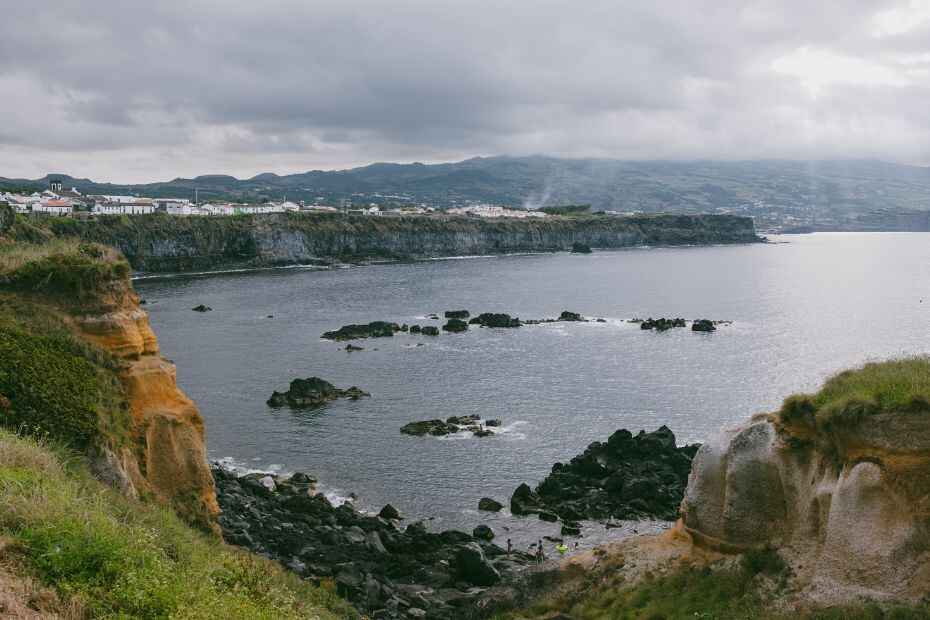
Readers want you to take them on a journey with you. If you can’t pay for them to join you on a sea voyage to the Azores, you’ll have to settle for evoking the five senses and other descriptive writing techniques.
Take for example, Paul Theroux. A prolific travel writer with a career spanning five decades, he’s treasured for his ability to pull readers into his adventures with simple yet evocative language, as he does in his essay, “ Taking the Great American Roadtrip ”:
What made Barstow's billboards a peculiar blight was the contrast with everything that lay around them—the landscape that was so stark and dramatic as a brooding expanse of withered shrubs and fat cactuses, the stony roads that seemed to lead nowhere, the bleak and beautiful backdrop that seemed as though no one had laid a hand on it, with lively colorations at a distance and up close so dry, like a valley of bones looking as though they could not support life. I had seen deserts in Patagonia and Turkmenistan, northern Kenya and Xinjiang in western China; but I had never seen anything like this. The revelation of the Mojave Desert was (peering past the billboards) not just its illusion of emptiness but its assertive power of exclusion, the low bald hills and far-off mountains looking toasted and forbidding under the darkening sky.
Theroux invites the reader on the road with him and describes the desert landscape in crisp detail. The use of simile (“like a valley of bones”) and strong language (“stark, dramatic”) brings the piece to life and gives us a view from Theroux’s window so it feels like we’re traveling along with him.
How do you remember and keep track of all these details while you’re on the go? Keeping a journal while you’re traveling — even if it’s just to another part of the town you live in — is a great method to have all the information you need to write your story when you finally get to sit down and reflect on your journey.
Cherry-pick the details that will tell the best story
Though you may have recorded many interesting details, you can’t include everything. Travel writing may feature a lot of exposition to set the scene, but it isn’t the same thing as keeping a journal. To make a stronger piece, you need to focus on the right stories and details, which means knowing what to add and what you can leave out.
At the same time, being concise is important. Unless you’re running your own blog or website, most digital or physical publications will have word limits to adhere to. Identifying what’s most important and most interesting to your audience as you write makes for more compelling writing.
Preparation is key
For travel writers, research skills go hand-in-hand with writing skills. You might be asked to write about a topic you aren’t familiar with or you might need to learn more about a place’s history or background to give your piece greater context. Research will allow you to create an accurate and well-informed story and help fill in the gaps in your own knowledge. And who knows, you might stumble on something that will inspire your next trip or story.
Before you begin planning your next trip to the most popular destination of the year, you need to research where everyone has already gone. If you find a lot of articles about solo travel in Brazil, that might mean you need to find a new angle or pick a different place entirely, and down another research rabbit hole you’ll go.

Learning as much as you can about the culture and history of the place you’re visiting will undoubtedly deepen your understanding and experience of it. A monument or a park might be pretty and fun to hang out in, but knowing that New York City’s Washington Square Park was built over the graves of 20,000 people makes for both an interesting angle and a more emotionally impactful piece.
Even if you want to write from the perspective of someone going into an experience blind, you still need to do research to travel anywhere — or you’ll end up writing a travelog where you barely find your way out of the airport parking lot.
While these are the main two skills you should focus on, there are a few more that can give you and your writing a boost.
Interviewing
A subset of research, learning how to interview effectively will broaden the scope of your knowledge and your writing. Sometimes, you need a perspective other than your own, and who better to tell you about all the hidden secrets of Barcelona than a local? It’s an invaluable skill — especially for a travel writer — to be able to go into a place and speak to people, to get their stories and perspectives so you can go beyond just being a tourist. It’s a way to pull back the curtain and really connect yourself and your reader with the wider world.

Travel writers do this quite often, and a great example can be seen in Anthony Bourdain’s TV show, Parts Unknown . On the surface, this food travel show showcases the cuisines of the world. But Bourdain’s interests, and thus the show’s, were much more focused on the lives of the people he’d meet along the way.
If you also want to write in a way that exceeds the usual ‘visit-here-and-eat-that’ humdrum of most so-called travel writing and really start to understand the people you’ll encounter, you’ll need to become a passable interviewer.
Finding people to interview, asking the right questions, and making your interviewee comfortable are the main things that go into conducting a successful interview. Before you go out into the wider world, you can practice with friends, but really, the best way to learn is by doing. Record your interviews or take notes to ensure you don’t forget anything and have quotes to use for when you write your story. And, of course, ask permission before you conduct the interview or use the material.
With your notes and quotes in order, you then need to do the hard part: figure out what’s relevant. You may have dozens of poignant quotes and conversations, but it’s inevitable that you’ll have more raw material than you’ll be able to use. There’s no one right way to make this judgment. It takes time, experimentation, and experience to figure which ones are the best and order them together into one coherent whole.
Stay up to date with the travel industry
While not necessarily a skill, part of being a good travel writer is being in the know about what’s happening in the travel industry. After all, the larger trends of people’s travel habits, popular destinations, and the state of major airlines and hotels influences the kind of information people are looking for. And it can always serve as inspiration for your next story. There are dozens of industry newsletters you can subscribe to that will keep you apprised of any new developments (including job openings and calls for pitches) in the world of travel, such as Lottie Gross’s Talking Travel Writing . Use them wisely.
Staying up to date is also knowing where the opportunities to monetize your writing lie. The travel industry is full of affiliate programs and content partnerships, where you can get paid for your work without having to sell it to a publisher or outlet. Your chances of landing these types of deals significantly increase if you have your own blog or social media accounts with a good amount of subscribers, but there may be other opportunities out there as well if you’re savvy.
Even travel writers who don’t consider themselves “influencers” can learn a lot from people creating video content relating to travel topics, especially when it comes to how to make a profit off their content. If you’re interested in running and making money off your own blog, knowing about programs like these and where to find them is incredibly important.
Whether you’re looking to get a brand partnership, pitch an online publication, or a guest post on a travel blog, learning the basics of search engine optimization (SEO) and applying it to your writing will help you as you search for opportunities. Essentially, SEO is about optimizing a web page — in this case, your article — to be read by a search engine and draw users to it. It’s no surprise, then, that many publications value writers who have SEO skills and can optimize their articles to bring more traffic to their website.
Learn to take good photos
Besides being a competent and compelling writer, there's another skill that you should look to hone: photography. As much as people enjoy reading about places they’ve never been to, descriptive writing and imagination can only go so far. When it comes to travel, a picture can truly speak more than a thousand words. And a video might be even better. Visual media adds extra color and context to your piece while complementing your writing.
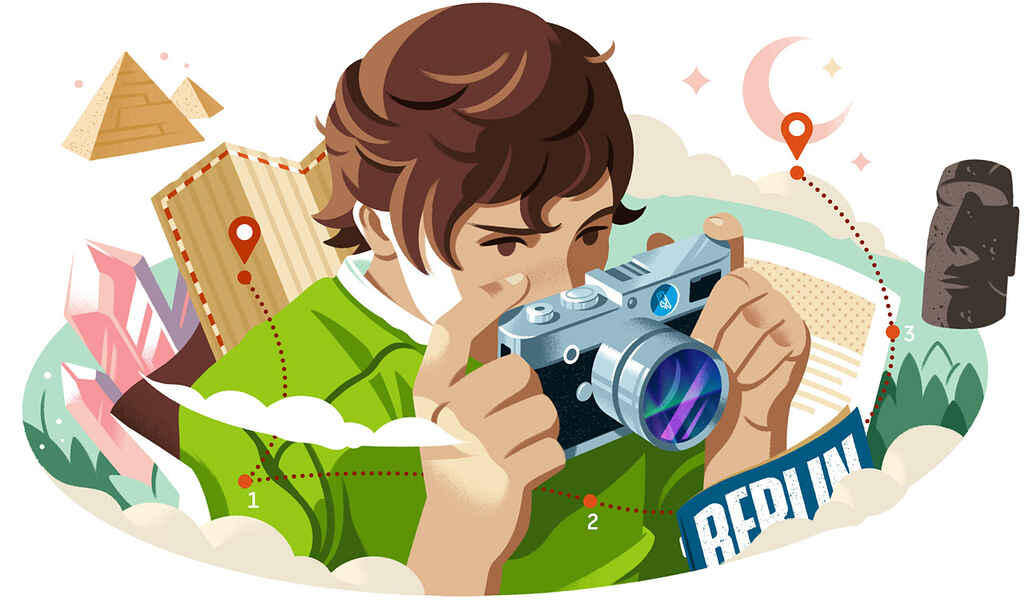
Depending on whether you’re freelancing or working full-time for a publication, you won’t always have a photographer following you on your journey. Learning the basics of photography can be helpful in those instances and make you a more well-rounded travel writer. In some cases, it might even be attractive to publications if you can provide your own photos. Consider posting what you capture on your personal blog, Instagram, or TikTok as well. Any way of building a following is great.
This doesn’t mean you must invest in a quality DSLR camera (though you certainly can). These days, many smartphones have top-of-the-line cameras that can take the kinds of stunning pictures of white sand beaches and ancient castles that readers are looking for. A beginner’s photography course can help you learn all the basics about lighting, color, and composition and have you snapping great shots in no time.
📸 Taking plenty of photos can also help you ace your descriptive writing, for those moments when you’re struggling to recall specific details about a place you visited.
Build a portfolio of work
Once you have a solid foundation of skills, you can begin creating your portfolio. While you might dream of being a staff writer at a travel publication, or make a living as a freelance travel writer, it’s unlikely that you’ll be able to jump straight into that role.
Find a niche you love
Unsurprisingly, travel writing is a popular choice for aspiring writers. Who doesn’t want to galavant around the world and make a living writing about your adventures ? But, of course, that also means it’s a very competitive field, and standing out can be difficult. Finding a way to differentiate yourself will give you a leg up and provide a focus for your articles.
The great thing about travel writing is that there is a nearly never-ending number of niches you could devote yourself to. You can write exclusively about a certain country or area of the world or gear your work towards a specific audience, such as budget travelers, people traveling with family, or digital nomads. If you have a unique perspective, it’s likely that people will want to read about it.
That isn’t to say you can’t write outside your chosen subfield. Plenty of writers find success publishing in their niche and then expanding their reach to become a sort of jack of all trades. Having a focus will simply allow you to stand out from the crowd.
Collect some quality clips

First, you need to build up a reputation and a solid amount of quality clips — a journalistic term for published articles. They will serve as your resume, showing off your writing and research skills, as well as the topics you’re familiar with and your general style. As you start looking for ways to build your portfolio, internships, freelance opportunities, and blogging can all be great ways to start out.
💡If you’re curious about the many kinds of work travel writers can do, check out this post about the different types of travel writing .
📕And if you already have a travel writing blog, you might want to turn your blog into a book that you can pitch to publishers or self-publish.
Look for internships
Internships are a common way writers gain experience and clips. Magazines and online publications may allow aspiring travel writers to flex their skills and learn about what goes into professional travel writing. However, while there are paid internships in this field, many are likely unpaid. Whether you want to pursue an unpaid internship remains up to you, but we recommend valuing your time and pursuing paid internships when you can.
Consider freelance writing
Another option to consider is writing on a freelance basis . Pitching articles to travel publications will not only be a way to gain jobs and clippings but allows you to practice ideation and build up a personal brand, as you are entirely in charge of the topics you’re writing about. It also expands your network of contacts in the industry, which will help you as you continue to pitch magazines and might lead to a job somewhere down the road.

FREE RESOURCE
Writing Submissions Checklist
Make sure your magazine and contest submissions are prepped to impress.
And if you want to take complete control of your career, a subset of freelancing is blogging. Dozens of freelance travel writers supplement (or make a career out of) running their own personal blog. Having one will give you a ready-made portfolio of clips showing off your skills. This is where having a niche can be especially helpful, as it’s a way to set you apart from all the other travel blogs on the Internet.
Search for jobs and writing opportunities
With a solid portfolio of clips, it’s time to go out into the world and fully devote yourself to a career in travel writing. There are two main tracks you could take: finding a staff writer position at a magazine or becoming a freelance travel writer.
Finding full-time travel writer jobs

For many writers, the dream is to work full-time as a travel writer for a publication. It offers stability while letting you travel to different destinations to write and explore.
Although there are many travel-focused magazines like Conde Nast Traveler and Travel + Leisure that might have staff writer positions, don’t discount other publications. Some magazines and newspapers with completely different focuses have travel sections that need staff writers to keep them running.
For positions like this, a portfolio is especially important. Magazines want to see that writers have a background in journalism and are reliable writers who can deliver good-quality pieces on time. Previously being published is often proof of that. But part of building a portfolio is also building connections with people in the industry. Knowing someone at a magazine who is familiar with your work and can vouch for you can help you get your foot in the door and be hired as a staff writer.
Freelancing
Another option is to continue down the freelance path, pitching and writing your own stories. This route gives you a lot more freedom. You can decide which places to visit and which activities you want to do, and you’re always in charge of your own itinerary. Overall, you’re much less likely to work on a story you’re not interested in because an editor told you you must.
This is where picking a niche and having a blog can be especially helpful. Establishing yourself as an authority on a subject will draw people to your articles and give you credibility as you pitch publications. A website dedicated to your niche, with all your expertise located in one place, elevates your credibility and provides a useful resource for your readers — especially if you get a handle on SEO. Eventually, you can even turn your blog into a book and create another revenue stream.

The Full-Time Freelancer's Checklist
Get our guide to financial and logistical planning. Then, claim your independence.
Travel writing allows you to indulge in and subsidize your wanderlust and make a living off of it. More than that though, travel writing is a way to connect people across cultures and great distances, and build an appreciation for the uniqueness and diversity around us.
Continue reading
Recommended posts from the Reedsy Blog

100+ Character Ideas (and How to Come Up With Your Own)
Character creation can be challenging. To help spark your creativity, here’s a list of 100+ character ideas, along with tips on how to come up with your own.

How to Introduce a Character: 8 Tips To Hook Readers In
Introducing characters is an art, and these eight tips and examples will help you master it.

450+ Powerful Adjectives to Describe a Person (With Examples)
Want a handy list to help you bring your characters to life? Discover words that describe physical attributes, dispositions, and emotions.

How to Plot a Novel Like a NYT Bestselling Author
Need to plot your novel? Follow these 7 steps from New York Times bestselling author Caroline Leavitt.

How to Write an Autobiography: The Story of Your Life
Want to write your autobiography but aren’t sure where to start? This step-by-step guide will take you from opening lines to publishing it for everyone to read.

What is the Climax of a Story? Examples & Tips
The climax is perhaps a story's most crucial moment, but many writers struggle to stick the landing. Let's see what makes for a great story climax.
Join a community of over 1 million authors
Reedsy is more than just a blog. Become a member today to discover how we can help you publish a beautiful book.

We made a writing app for you
Yes, you! Write. Format. Export for ebook and print. 100% free, always.

1 million authors trust the professionals on Reedsy. Come meet them.
Enter your email or get started with a social account:

What does a travel journalist do?
Berta Carreras
6 de June de 2024
Travel Journalism
Being a travel journalist is a fascinating profession but also full of clichés. We tell you what exactly it does.
When someone asks you about your job and you answer “travel journalist,” airplanes and palm trees, suitcases and daiquiris on the beach appear in their eyes. Immediately after, comes the universal reaction: “They pay you to travel, how cool!” Yes and no, I would even dare to say that this profession is much more than that. In a world where documenting a trip today involves as many tools as approaches and formats, being a travel journalist becomes an even more fascinating profession.

The simple explanation to this question would be to write, photograph, collect, process and edit reports, articles or travel chronicles. However, if we dig deeper into this definition we will find formats such as columns or photoreports; different perspectives within the same topic or destination. For example, we can talk about the “10 things you can do as a traveler in Ibiza” but also talk about the environmental problems of Posidonia on the beaches of the Pitiusa island.
In any case, the pillars of travel journalism lie in the author’s ability to capture all the sensations experienced on a trip without forgetting journalistic rigor. Disregarding data would be delving deeper into the figure of the travel writer, but that is another topic that we address in other posts.
What does a travel journalist do?: False clichés

They pay you to travel
This is one of the most common clichés about the travel journalist but it is not always true. Until not so many years ago there were fewer authors and editorial supports, so financing a trip was more common. Nowadays, the most common ways to travel “for free” include press trips or business trips organized by a tourism company. In most cases, it is the travel journalist who must assume the costs or, in any case, request an invoice to deduct expenses, whether you are self-employed or work for third parties.
Document the most recommended places in a destination
We return to the “yes but no” dichotomy, so present in current travel journalism. We are used to posts and articles that highlight the most recommended places in a certain destination. However, the true job of the travel journalist is (or at least, it should be) to see a place with new eyes. Transmit the correct information but, above all, inspire readers through different perspectives : from cultural value from a region to tourist totems. Yes, but also traditional gastronomy, sensations or reflections focused on improving the perception of a destination.
It’s a relaxing job
During an interview with the TravelHappy media, travel writer Simon Sellers confessed that writing the famous travel guides for Lonely Planet was not the job that all journalists dreamed of. In addition to being a stressful job, financial restrictions barely leave you time for leisure and pleasure, salary depends on efficiency , and nerves of steel are required to gather information from so many places in a finite time. This reality is applicable to many other jobs related to travel journalism.
What does a travel journalist really do?
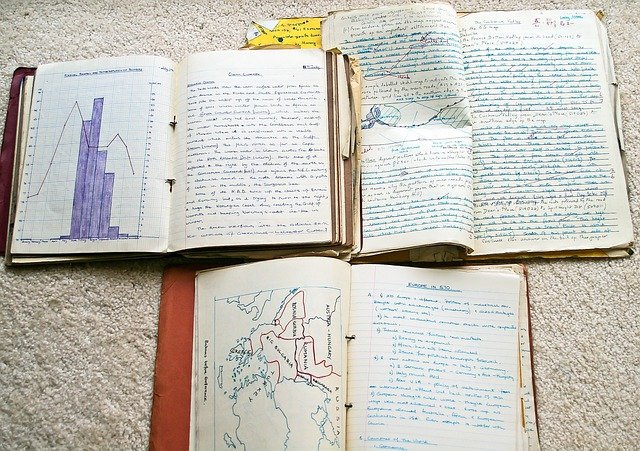
Provide new perspectives on the world of travel
“A curious look that discovers what was there and others looked but did not see.” This is how the renowned writer Daniel Samper Piano described the mission of the travel journalist. A figure who inspires the reader through his vision of a destination but who also provides reliability through data, photographs and descriptions of different places and their reality.
Work with different formats
There are travel journalists who not only live by words, but also by their Nikon camera and their photo reports. Other people will feel more comfortable writing a travel column, writing press releases for tourism companies, writing travel chronicles, or publishing books. If we talk about teaching, many travel journalists hold workshops, talks, seminars or teach a master’s degree in travel journalism to inspire new generations. Anything goes as long as you remain interested in continuing to discover and transmit your knowledge in a way that is as personal as it is universal, dreamy, truthful.
Travel journalists must get used to being in transit constantly, so they won’t always be able to spend as much time with their loved ones. Furthermore, you must keep in mind that the principles are not always easy, they require insight, good writing and, above all, love for your work . Thinking that being a travel journalist means “traveling and getting paid” is a very naive belief, but that doesn’t mean you should be discouraged. No matter how many clichés there are, enjoying your passion will always be the first goal.
The best travel magazines
Most followed travel influencers on instagram, 1 thought on “what does a travel journalist do”.
- Pingback: Sustainable Tourism: Copenhagen Rewards the Greenest Tourists
Leave a Comment Cancel reply
Save my name, email, and website in this browser for the next time I comment.
School of Travel Journalism
+34 623 98 10 11
Our program
Master in Travel Journalism
Useful links
Privacy Policy
Cookie Policy
Terms of use
What does a travel writer do?
Would you make a good travel writer? Take our career test and find your match with over 800 careers.
What is a Travel Writer?
A travel writer is a writer who specializes in documenting their travel experiences, providing insights into the places they visit, and sharing recommendations for other travelers. Their job is to create compelling narratives and stories about their travels, including descriptions of the people, culture, and geography of the places they visit. Travel writers often work for newspapers, magazines, and travel websites, and they may also write books or blogs about their experiences. They may travel to destinations across the world, from major cities to remote locations, and may have expertise in specific areas or types of travel, such as adventure travel or luxury travel.
To be a successful travel writer, one needs to have excellent writing skills, the ability to capture the essence of a place, and a passion for travel. They must be able to convey their experiences and observations in a way that engages and inspires readers, and they should have a keen eye for detail, as well as the ability to research and fact-check information. Travel writers may also need to have photography or videography skills to capture the visual aspects of their travels.
What does a Travel Writer do?

Travel writers play a vital role in shaping our understanding of the world and its diverse cultures. Through their writings, they offer a window into the unique experiences and perspectives of different people and places, helping us to broaden our horizons and expand our knowledge. They not only provide practical information about destinations but also capture the essence of a place, its people, history, and culture, making us feel as if we have been there ourselves.
Duties and Responsibilities The duties and responsibilities of travel writers can vary depending on the specific role and employer. However, some common duties and responsibilities of travel writers include:
- Researching and exploring destinations: Travel writers need to conduct extensive research before visiting a destination. They need to know the history, culture, and attractions of the place they're writing about, as well as practical information like transportation options, accommodation, and safety considerations. Once they arrive, travel writers may visit museums, galleries, historical sites, and other tourist attractions. They may also attend local events, try local foods, and interact with locals to get a better sense of the destination.
- Writing engaging and informative content: Travel writers need to write engaging and informative content that captures the attention of their audience. They need to be able to convey the sights, sounds, and feelings of a destination, and make readers feel like they're actually there. Travel writers need to be skilled in storytelling, using vivid descriptions, and painting a picture with words.
- Developing story ideas: Travel writers need to come up with fresh and interesting story ideas that will appeal to their audience. They may draw inspiration from their own experiences, or from trends in the travel industry. They need to be able to identify unique angles and highlight lesser-known attractions or hidden gems.
- Taking photographs and videos: Travel writers may be required to take photographs and videos to accompany their written content. They need to have a good eye for composition, lighting, and framing. They may also need to edit their photos and videos using software like Adobe Photoshop or Final Cut Pro.
- Editing and proofreading: Travel writers need to be skilled in editing and proofreading their own work. They need to check for accuracy, clarity, and consistency, as well as correct any spelling or grammatical errors.
- Meeting deadlines: Travel writers need to be able to work to tight deadlines, as they may be working on multiple projects at once. They need to be organized and able to manage their time effectively to ensure they deliver high-quality content on time.
- Networking and building relationships: Travel writers need to network and build relationships with other writers, editors, and industry professionals. This can help them stay up to date with trends and opportunities, as well as get their work published in reputable publications.
- Adhering to ethical standards: Travel writers need to adhere to ethical standards when writing about destinations. This includes being honest and truthful in their writing, respecting local customs and traditions, and avoiding any conflicts of interest or biased reporting.
Types of Travel Writers There are various types of travel writers, each with their own specific focus and area of expertise. Here are some common types of travel writers:
- Destination-Focused Writers: These writers specialize in writing about specific destinations, such as countries, cities, or regions. They may provide practical information like transportation options and accommodation, as well as highlight attractions, events, and local culture.
- Adventure and Outdoor Writers: These writers focus on outdoor activities like hiking, camping, and skiing. They may write about their own experiences or provide advice and tips for readers interested in outdoor adventure.
- Food and Drink Travel Writers: These writers specialize in writing about food and drink in various parts of the world, highlighting local cuisine and beverages. They may recommend restaurants, cafes, and bars, as well as provide recipes and cooking tips.
- Luxury Travel Writers: These writers focus on high-end travel experiences like five-star hotels, luxury cruises, and private tours. They may provide recommendations for luxury travel destinations and experiences, as well as tips for travelers looking to splurge on their next vacation.
- Budget Travel Writers: These writers focus on budget-friendly travel options, providing advice on how to travel on a budget and still have an enjoyable experience. They may recommend budget-friendly destinations and accommodations, as well as provide tips on how to save money on transportation, food, and attractions.
- Family Travel Writers: These writers focus on family-friendly travel experiences, providing advice and recommendations for families traveling with children. They may highlight family-friendly destinations, accommodations, and attractions, as well as provide tips on traveling with children.
- Cultural and Historical Writers: These writers focus on cultural and historical attractions, highlighting museums, historical sites, and cultural events. They may provide insights into local customs and traditions, as well as provide recommendations for cultural and historical destinations.
What is the workplace of a Travel Writer like?
The workplace of a travel writer can vary greatly depending on the specific writer's job requirements. Travel writers may work remotely, traveling to various destinations to conduct research and write about their experiences. This can involve working from coffee shops, airports, hotels, and other public spaces as they gather information and write their stories.
Many travel writers also work for media outlets, such as magazines, newspapers, or websites, and may have a more traditional office setting. They may work in a newsroom or at home, researching and writing stories that meet the requirements of their employer's editorial style.
Some travel writers are self-employed and work as freelancers. They may have a home office or co-working space, where they can work on multiple projects for different clients. Freelance travel writers need to be able to manage their time effectively, as they may have multiple deadlines to meet.
Regardless of their work setting, travel writers need to have access to a computer, reliable internet connection, and other tools necessary to conduct research and write their stories. They may also need equipment like cameras or video cameras to capture images and footage of their travel experiences.
Travel writers may also attend industry events and conferences, such as travel trade shows and tourism boards' events, to network with other professionals and learn about new travel trends and opportunities. These events can take place all over the world, and travel writers may need to travel to attend them.
Frequently Asked Questions
Writing and journalism related careers and degrees.
Writing Careers
- Academic Writer
- Content Writer
- Fiction Writer
- Food Critic
- Ghostwriter
- Grant Writer
- Literary Agent
- Music Critic
- Nonfiction Writer
- Screenwriter
- Speechwriter
- Sports Writer
- Technical Writer
- Television Writer
- Travel Writer
Journalism Careers
- Correspondent
- News Anchor
- News Reporter
- Photojournalist
- Broadcast Journalism
- Children's Literature
- Creative Writing
- Screenwriting
- Songwriting
- Technical Writing
Continue reading
Travel Writers are also known as: Travel Journalist
10 Tips for Successful Travel Journalism
- Published: November 30, 2023
- By: Yellowbrick
Travel Journalism: A Comprehensive Guide to a Thriving Career
Travel journalism is a captivating field that allows individuals to explore the world while sharing their experiences through the written word. It combines the thrill of traveling with the art of storytelling, making it a dream career for many. If you have a passion for both travel and writing, then travel journalism might be the perfect path for you. In this article, we will delve into the world of travel journalism, exploring what it entails, the skills required, and the various career opportunities available.
1. Develop Strong Writing Skills
One of the most crucial aspects of travel journalism is the ability to convey your experiences and observations effectively through writing. As a travel journalist, your words should transport readers to the destinations you visit, allowing them to experience the sights, sounds, and emotions alongside you. To excel in this field, hone your writing skills by practicing regularly, reading extensively, and seeking feedback from experienced writers.
2. Cultivate a Keen Eye for Detail
Attention to detail is paramount in travel journalism. Your ability to observe and capture the essence of a place will set your work apart. Notice the intricate details, the unique aspects of each location, and the stories that lie beneath the surface. Take note of the local customs, the architecture, the cuisine, and the people. These small details will enrich your writing and provide a more immersive experience for your readers.
3. Embrace the Art of Storytelling
Travel journalism is more than just reporting facts; it’s about telling compelling stories. Weave narratives that engage your readers, taking them on a journey alongside you. Use storytelling techniques such as descriptive language, dialogue, and personal anecdotes to create a captivating narrative that resonates with your audience.
4. Develop Your Research Skills
Thorough research is essential for travel journalists. Before embarking on a trip, familiarize yourself with the destination’s history, culture, and current events. Research local attractions, hidden gems, and off-the-beaten-path locations that will add depth to your articles. By arming yourself with knowledge, you can provide valuable insights and recommendations to your readers.
5. Build a Strong Network
Networking is crucial in any industry, and travel journalism is no exception. Connect with fellow travel journalists, editors, and industry professionals to expand your opportunities and gain valuable insights. Attend industry events, join online forums, and engage with travel communities to build relationships that can lead to collaborations and career advancements.
6. Embrace New Technologies
In today’s digital age, travel journalists must adapt to new technologies and platforms. Embrace social media, create an online presence, and leverage technology to enhance your storytelling. Consider starting a travel blog or vlogging channel to share your experiences visually. Stay up-to-date with the latest digital tools and trends to remain relevant in the ever-evolving world of travel journalism.
7. Develop Photography and Videography Skills
Visual content is becoming increasingly important in travel journalism. Enhance your storytelling by developing photography and videography skills. Capture captivating images and videos that complement your written articles. Learn the basics of composition, lighting, and editing to create visually stunning content that engages your audience.

8. Be an Expert in a Niche
Travel journalism encompasses a wide range of topics, from adventure travel to culinary tourism. Consider specializing in a niche that aligns with your interests and expertise. By focusing on a specific area, you can establish yourself as an authority and attract a dedicated audience.
9. Pursue Formal Education or Online Courses
While a formal education is not a prerequisite for a career in travel journalism, it can provide valuable skills and knowledge. Consider pursuing a degree in journalism, communications, or a related field. Alternatively, there are online courses, such as those offered by Yellowbrick , that specialize in travel journalism and can provide you with industry-specific training and insights.
10. Seize Opportunities for Internships and Freelance Work
Internships and freelance opportunities are invaluable for gaining real-world experience and building your portfolio. Seek out internships at travel publications, newspapers, or online platforms. Alternatively, pitch your ideas to editors and publications as a freelance writer. These experiences will not only enhance your skills but also open doors to future career opportunities.
Travel journalism offers an exciting and fulfilling career path for those with a passion for travel and storytelling. By honing your writing skills, embracing new technologies, and developing a strong network, you can carve your own path in this dynamic industry. Whether you choose to work for established publications or embark on a freelance career, the world of travel journalism is yours to explore and share with the world.
Key Takeaways:
- Travel journalism combines the thrill of travel with the art of storytelling, making it an exciting career choice for those passionate about both.
- Developing strong writing skills and attention to detail are crucial for success in travel journalism.
- Embracing the art of storytelling and using descriptive language and personal anecdotes helps engage readers.
- Researching destinations thoroughly and building a strong network are essential for providing valuable insights and opportunities.
- Keeping up with new technologies, developing photography and videography skills, and specializing in a niche can set you apart in the field.
- Pursuing formal education or online courses, such as those offered by Yellowbrick, can provide industry-specific training and knowledge.
- Internships and freelance work are invaluable for gaining experience and building a portfolio in travel journalism.
To further enhance your skills and knowledge in travel journalism, consider taking the “NYU | Modern Journalism” online course and certificate program. This comprehensive program offered by New York University provides valuable insights and training to help you succeed in the dynamic world of travel journalism. So, start this exciting journey, armed with the right skills and knowledge, and share your travel experiences with the world!
Enter your email to learn more and get a full course catalog!
- Hidden hide names
- Hidden First Name
- Hidden Last Name
- Email This field is for validation purposes and should be left unchanged.
More from Yellowbrick

Top Rendering Artist Jobs: Explore Career Paths & Skills
Explore the dynamic field of rendering artist jobs. Uncover top roles, essential skills, and valuable insights to succeed in this creative industry.

Layout Artist Jobs: Skills, Opportunities & Career Growth
Explore the world of layout artist jobs, essential skills for success, educational paths, and strategies for career advancement in our comprehensive guide.

Discover Special Effects Artist Jobs in Entertainment Industry
Explore the diverse world of special effects artist jobs. From film and TV to games and advertising, unlock thrilling and creative opportunities.
ABOUT YELLOWBRICK
- Work at Yellowbrick
- Privacy Policy
- Terms of Use
STUDENT RESOURCES
- Scholarships
- Student Login
- Beauty Business Essentials
- Beauty Industry Essentials
- Ecommerce Essentials
- Fashion Business Essentials
- Fashion Industry Essentials
- Footwear Business Essentials
- Gaming & Esports Industry Essentials
- Global Sports Management
- Hospitality Industry Essentials
- Music Industry Essentials
- Performing Arts Industry Essentials
- Product Design Essentials
- Sneaker Essentials
- Streetwear Essentials
- TV/Film Industry Essentials
- UX Design Essentials
©2024 Yellowbrick · All Rights Reserved · All Logos & Trademarks Belong to Their Respective Owners

Travel journalist: Key Skills, Qualifications and Career Path
Jump to section, what is a travel journalist, how do i become a travel journalist, what would you like to know, what does it take to become an travel journalist.
Skills, education, personality, career progression
Job demand for an Travel journalist
Job ads, popular location, season to apply
- Excellent written and verbal communication skills
- Strong research and storytelling abilities
- Proficiency in digital media and social media platforms
- Attention to detail and accuracy in reporting
- Ability to work under tight deadlines and manage multiple projects
- Knowledge of travel industry trends and destinations
- Adaptability and willingness to travel frequently
- Networking and relationship-building skills
- Creativity and ability to think outside the box
- Strong organizational and time management skills
Qualifications & Education
- No formal academic entry requirements
- Spoken fluency in a foreign language required for some positions
- NVQs/SVQs in travel services available at Levels 2 and 3
- On-the-job training provided
Career Path
Frequently asked questions.
To become a travel journalist in the UK, you can start by getting a degree in a relevant subject. Then, begin practicing independent travel journalism and seek out freelance jobs. You can also apply for full-time positions and work within a specific publication. Building up professional connections in the industry is also important.
To become a travel journalist in the UK, you typically need a bachelor's degree in journalism, communications, or travel and tourism. Additionally, you should have strong writing or photography skills, knowledge of travel, and the ability to travel abroad.
Yes, travel writing can be a good career for those who enjoy traveling and writing about their experiences. It can be a lucrative job that allows you to explore different places and share your adventures with others.

Ace Your Next Interview, Practice Mock Interviews Online
Find similar questions by using ai.
You can now find out what questions employers are likely to ask regarding your CV with the power of AI
How do you advise clients on environmental regulations and sustainability practices in agriculture?
See how you did.

How to Become a Freelance Travel Journalist: Tips for a Successful Career
To become a freelance travel journalist, build strong writing skills and create a diverse portfolio. Earn a degree in journalism. Gain experience with internships and practice writing regularly. Pitch stories to travel magazines. Accept rejection, and let your passion for travel inspire your storytelling.
Next, develop a niche. Identify specific themes or destinations you are passionate about. Specializing helps you stand out in a competitive field. At the same time, network with other travel writers and industry professionals. Attend travel conferences and join relevant online communities to expand your connections.
Establish an online presence. Create a blog or social media accounts to share your work. Engage with followers by posting captivating travel stories and images. This presence will attract editors and clients looking for fresh content.
Additionally, pitch your ideas. Research publications and tailor your proposals to fit their audience. Clearly outline your story angle and why it matters. Be persistent and prepared for rejection; this is part of the process.
With these strategies in place, you can build a successful career. Explore the next steps to enhance your journey. Embrace opportunities, seek feedback, and continually refine your craft to thrive in freelance travel journalism.
Table of Contents
What Does It Mean to Be a Freelance Travel Journalist?
To be a freelance travel journalist means to independently write and report on travel experiences while selling your work to various media outlets. This role combines passion for exploration with writing skills, allowing an individual to share unique insights and stories about different cultures, destinations, and travel trends.
Key points to consider include: 1. Independence and flexibility. 2. Diverse storytelling techniques. 3. Building a personal brand. 4. Networking and relationship building. 5. Respecting cultural nuances. 6. Financial management. 7. Challenges of inconsistent income.
Understanding these aspects provides insight into the multifaceted nature of freelance travel journalism, as well as its rewards and challenges.
Independence and Flexibility: Being a freelance travel journalist grants individuals the freedom to choose assignments and set their own schedules. This independence allows for travel at one’s convenience, whether for a magazine piece or personal exploration. Freelancers can create unique itineraries tailored to their interests. However, this independence comes with the responsibility of self-discipline and time management.
Diverse Storytelling Techniques: Freelance travel journalists employ various storytelling methods to engage their audience. They use written articles, photography, video, and social media to convey experiences. For instance, travel blogs often combine personal narratives with practical information. According to a 2022 study by the International Journal of Tourism Research, compelling storytelling significantly influences readers’ travel decisions, emphasizing the importance of narrative style.
Building a Personal Brand: A successful freelance travel journalist establishes a distinct personal brand to stand out in a competitive market. This involves curating a unique writing style, visual aesthetics, and consistent messaging across platforms. Effective branding helps journalists attract opportunities. Building a brand may involve creating a website or a robust presence on social media platforms such as Instagram or Twitter.
Networking and Relationship Building: Freelance travel journalists often rely on networks for job opportunities and support. They connect with editors, other writers, and industry professionals at travel conferences or through social media. Building relationships with tourism boards and local businesses can lead to sponsored trips and collaborations. According to Timeless Travel Magazine, networking is crucial for sharing ideas and gaining inspiration.
Respecting Cultural Nuances: Freelance travel journalists must navigate diverse cultures with sensitivity. Understanding local customs, traditions, and concerns is essential when writing about a destination. Missteps can lead to negative consequences and backlash from locals. This perspective highlights the responsibility of journalists to portray cultures accurately and respectfully.
Financial Management: Freelance travel journalists face the challenge of irregular income. They must manage finances effectively, budgeting for travel and living expenses. Income may vary based on assignment frequency, publication rates, and client agreements. According to a study by the Freelancers Union in 2019, freelancers commonly struggle with income instability, emphasizing the importance of savings and planning.
Challenges of Inconsistent Income: Freelance travel journalism can involve unpredictable earnings. Writers may experience droughts between assignments, making financial stability challenging. Establishing a steady flow of projects requires persistence and adaptation. Many freelancers diversify income sources by exploring different media formats, such as podcasting or offering consultation services, to mitigate income fluctuations.
These key points illustrate the complexity of being a freelance travel journalist. This role combines personal passion with professional responsibilities, demanding creativity, adaptability, and financial acumen.
What Essential Skills Should You Develop to Succeed as a Freelance Travel Journalist?
To succeed as a freelance travel journalist, you should develop essential skills such as writing, research, networking, adaptability, and photography.
Writing Skills
Research skills, networking skills.
- Adaptability
Photography Skills
These skills create a strong foundation for freelance travel journalists. Each skill contributes uniquely to the overall effectiveness and marketability of a journalist in this competitive field.
Writing skills are critical for freelance travel journalists. Clear, engaging prose helps convey experiences vividly to readers. Strong writing captivates audiences and keeps them interested. According to a study by the American Society of Journalists and Authors (ASJA, 2021), effective writing increases reader engagement by 60%. A case study of well-known travel writer Paul Theroux illustrates how his descriptive narratives transported audiences to distant locations.
Research skills involve gathering information about destinations, culture, and events. Effective research allows journalists to provide accurate and engaging content. A lack of thorough research can lead to misinformation, damaging credibility. According to the Pew Research Center (2022), journalists who conduct comprehensive research see a 40% increase in audience trust. A practical example includes how journalists preparing for articles often utilize databases like UNESCO for historical insights.
Networking skills are essential for connecting with editors, other writers, and industry professionals. Building relationships can lead to collaboration and job opportunities. A report from the Freelance Writers Den (2023) indicates that 75% of successful freelance writers credit their career growth to networking. Engaging in events and social media can foster crucial connections.
Adaptability is the ability to adjust to various situations and unexpected events while traveling. This skill enables journalists to remain effective under changing circumstances. For instance, adapting writing style based on audience demographics ensures broader appeal. The International Journal of Communication found that adaptable journalists are 50% more likely to excel in diverse assignments (Smith, 2021).
Photography skills enhance storytelling by providing visual context. Compelling images complement articles and engage readers more effectively. A well-composed photo can make an article more inviting. A survey conducted by Travel Media Association (2022) showed that articles with original photographs received 80% more shares on social media. Freelance travel journalist and photographer Teddy Kelsey exemplifies how quality visuals can elevate travel stories.
By honing these skills, aspiring freelance travel journalists can create compelling content and navigate the demands of the industry successfully.
Which Writing Skills Are Crucial for Freelance Travel Journalists?
Freelance travel journalists require diverse writing skills to effectively convey their experiences and insights. These skills include creativity, strong narrative ability, attention to detail, adaptability, research proficiency, and audience awareness.
- Strong narrative ability
- Attention to detail
- Research proficiency
- Audience awareness
These skills interact and overlap, resulting in a versatile and engaging writing style. Understanding these crucial skills can strengthen a freelance travel journalist’s work.
Creativity : Creativity in freelance travel journalism fosters unique storytelling. Creative writers can weave fascinating narratives around their travel experiences. This skill helps journalists to engage readers through vivid descriptions and imaginative expressions. For example, a creative portrayal of a bustling market can transport readers into the scene, allowing them to visualize the colors, sounds, and aromas.
Strong Narrative Ability : A strong narrative ability is essential for crafting compelling stories. Journalists should structure their articles with a clear beginning, middle, and end. This structure ensures that readers remain captivated. Effective storytelling involves developing characters, settings, and plots, enhancing the reader’s connection to the narrative. This technique is supported by Robert McKee, a storytelling expert, who emphasizes the importance of structure in writing (McKee, 2020).
Attention to Detail : Attention to detail ensures accuracy and authenticity in travel writing. This skill involves careful observation and description of locations, cultures, and experiences. Accuracy in facts enhances credibility. For instance, correctly identifying local customs gives readers a deeper understanding of the culture. Travel journalist Paul Theroux exemplifies this through his meticulously detailed descriptions of the places he visits.
Adaptability : Adaptability in writing style and content is vital for freelance travel journalists. Trends in journalism and audience preferences often change. Writers must adjust their tone, format, or approach to meet these evolving demands. The ability to write for various platforms, from blogs to magazines, is advantageous. According to a survey by the Freelance Writers Den, adaptable writers attract more clients and larger projects (Freelance Writers Den, 2021).
Research Proficiency : Research proficiency is critical for providing informative and accurate content. Freelance travel journalists should research destinations, history, and current events before writing. This skill enhances the depth and quality of articles. Writers may reference studies or tourism databases to support their content. An example is using data from the World Tourism Organization to highlight travel trends.
Audience Awareness : Audience awareness relates to understanding the target readers. Knowing their interests and preferences allows journalists to tailor their writing effectively. This skill involves using relatable language and relevant topics to engage readers. For instance, a travel article focused on budget travel can appeal to young adventurers, while luxury travel features can target affluent audiences.
In summary, freelance travel journalists need a balanced mix of creativity, narrative skill, attention to detail, adaptability, research capability, and audience awareness. These writing skills are interconnected and enhance the journalist’s ability to connect with readers effectively.
How Important Are Photography and Storytelling Skills in Travel Journalism?
Photography and storytelling skills are highly important in travel journalism. These skills enhance the overall impact of travel narratives and engage readers effectively.
First, photography serves to capture the essence of a destination vividly. Strong images evoke emotions and convey the beauty of landscapes, cultures, and experiences. They can illustrate what words alone may struggle to express. For instance, a well-composed photograph can inspire curiosity and excitement about a location.
Second, storytelling provides a framework for presenting travel experiences. Good stories connect personal adventures with broader cultural or historical contexts. Effective narratives invite readers to immerse themselves in the journey. They allow journalists to share unique insights and observations, making articles feel relatable and engaging.
Both skills complement each other in travel journalism. Powerful visuals paired with compelling narratives create a richer experience for the audience. Travel stories that include high-quality photography alongside engaging narratives tend to resonate more deeply. They motivate readers to explore new places and understand diverse cultures.
In summary, photography and storytelling are crucial components of travel journalism. They work together to create captivating, informative, and inspiring content that connects with readers on multiple levels.
What Steps Should You Take to Start Your Career as a Freelance Travel Journalist?
To start your career as a freelance travel journalist, you should follow several essential steps. These steps provide a clear path for entering the field and building a successful career.
- Research Travel Journalism
- Develop Writing Skills
- Create a Portfolio
- Network with Industry Professionals
- Pitch Stories to Publications
- Utilize Social Media
- Stay Informed About Travel Trends
- Consider Travel Writing Courses
Transitioning from these steps, it is important to understand the significance of each one in detail.
Research Travel Journalism : Researching travel journalism involves understanding its principles and practices. It includes reading travel articles, analyzing what makes them successful, and identifying your unique voice. You can find valuable information in books and articles from experienced travel journalists.
Develop Writing Skills : Developing writing skills means honing your ability to convey stories effectively. You should practice writing regularly, focusing on clarity, creativity, and engaging storytelling. Joining writing groups or workshops can provide feedback and improvement opportunities.
Create a Portfolio : Creating a portfolio means compiling samples of your best writing. This allows you to showcase your style and expertise to potential clients or editors. Include diverse pieces such as personal travel blogs, articles, and features to demonstrate your range.
Network with Industry Professionals : Networking with industry professionals involves connecting with other writers, editors, and travel influencers. Attend travel conferences, workshops, and online events to build relationships that can lead to opportunities. Networking often leads to collaboration and increased visibility.
Pitch Stories to Publications : Pitching stories to publications means presenting your article concepts to editors. Create well-structured proposals that include a hook, your unique angle, and relevant information about yourself. Research publication guidelines to tailor your pitches effectively.
Utilize Social Media : Utilizing social media entails showcasing your travel writing and engaging with readers. Platforms like Instagram, Twitter, and Facebook are ideal for sharing travel experiences. Build a following by posting captivating content and interacting with your audience.
Stay Informed About Travel Trends : Staying informed about travel trends means keeping up with industry news and changes. Subscribe to travel magazines and blogs, and follow relevant organizations. Awareness of emerging trends can help you pitch timely and relevant stories.
Consider Travel Writing Courses : Considering travel writing courses can provide structured learning opportunities. Many online platforms offer courses that teach writing techniques, pitching methods, and industry insights. These courses help you sharpen your skills and boost your confidence.
How Can You Build an Impressive Portfolio for Travel Writing?
To build an impressive portfolio for travel writing, focus on showcasing diverse writing samples, establishing a personal brand, and networking within the travel writing community.
Diverse writing samples: Include a variety of articles, blog posts, or essays that highlight different aspects of travel. This can consist of destination guides, personal travel narratives, and cultural insights. Such diversity demonstrates your versatility as a writer. Aim for at least five solid pieces that showcase your ability to engage readers with different styles and formats.
Establishing a personal brand: Create a cohesive online presence that reflects your unique voice and perspective on travel. This includes selecting a distinct theme for your website or blog, using consistent imagery, and writing with a recognizable tone. The goal is to cultivate a recognizable identity that attracts readers and potential clients. According to a study by Krajcik and Munz (2018), branding can increase audience engagement by up to 75%.
Networking within the travel writing community: Build relationships with other travel writers, bloggers, and editors. Participate in travel writing forums, attend workshops, and join social media groups focused on travel. These connections can lead to collaboration opportunities, mentorship, and valuable insights. Data from Networking.org (2021) indicates that 70% of job openings are filled through networking, highlighting its importance in any field, including travel writing.
By focusing on these key areas, you can create a portfolio that not only showcases your writing skills but also establishes you as a credible travel writer in a competitive market.
What Networking Strategies Can Enhance Your Career as a Freelance Journalist?
To enhance your career as a freelance journalist, effective networking strategies are essential. Cultivating professional relationships can lead to new opportunities, collaborations, and audience growth.
The main networking strategies that can enhance your career as a freelance journalist include:
- Attend industry events and conferences
- Join professional organizations and associations
- Utilize social media platforms for networking
- Build a robust online portfolio
- Collaborate with other journalists and writers
- Seek mentorship and offer mentorship
- Engage in community journalism and local events
- Pitch story ideas to editors and influencers
Transitioning to the next section, each networking strategy plays a crucial role in developing a successful freelance journalism career.
Attend Industry Events and Conferences : Attending industry events and conferences allows freelance journalists to meet peers, editors, and potential clients. These gatherings provide valuable opportunities to learn about market trends, pitch ideas, and forge relationships. According to the American Society of Journalists and Authors (ASJA), networking at such events can lead to increased collaboration and job opportunities. For example, many successful freelance journalists credit their careers’ growth to connections made at conferences.
Join Professional Organizations and Associations : Joining professional organizations, such as the Society of Professional Journalists (SPJ), grants access to resources, industry insights, and networking opportunities. These organizations often host workshops, offer mentorship programs, and provide members with access to exclusive job listings. A 2019 study by the Pew Research Center found that professional networking significantly increases job referrals for journalists.
Utilize Social Media Platforms for Networking : Social media platforms, especially Twitter and LinkedIn, serve as powerful tools for networking. Freelance journalists can showcase their work, connect with editors, and engage with fellow journalists. A 2021 survey by Muck Rack indicated that 67% of reporters find their sources through social media platforms, highlighting its importance in establishing professional connections.
Build a Robust Online Portfolio : A strong online portfolio showcases a journalist’s expertise and writing style. Creating a website or using platforms like Medium allows freelancers to display their work. A well-presented portfolio can catch the attention of editors and potential clients. According to a 2020 report by Contently, having an online portfolio increases the likelihood of receiving freelance assignments.
Collaborate with Other Journalists and Writers : Collaboration fosters creativity and expands a journalist’s reach. Working with others can lead to co-authored pieces or joint projects, enhancing visibility. A case study published in the Journal of Communication found that collaborative journalism projects often result in high-quality content that attracts wider audiences.
Seek Mentorship and Offer Mentorship : Finding a mentor can provide invaluable guidance for a freelance journalist. Mentors can offer industry insights, advice, and contacts. Conversely, offering mentorship to emerging journalists can also build strong professional networks. Research from the Institute for Women’s Policy Research suggests that mentorship significantly impacts career advancement in all fields, including journalism.
Engage in Community Journalism and Local Events : Participating in community journalism enhances a journalist’s local profile and network. Covering local events, collaborating with community organizations, and engaging with local audiences can lead to valuable connections. According to a 2018 study by the Knight Foundation, community engagement significantly strengthens a journalist’s role in their area.
Pitch Story Ideas to Editors and Influencers : Proactively pitching story ideas to editors and influencers establishes relationships and increases visibility. A well-crafted pitch can demonstrate a journalist’s expertise and creativity. According to Ann Wylie, a communication expert, strong pitching skills are crucial for freelancers seeking to land stories in competitive editorial environments.
By implementing these networking strategies, freelance journalists can build essential relationships, enhance their reputations, and create more opportunities within the industry.
How Can You Find Freelance Travel Writing Opportunities?
To find freelance travel writing opportunities, you can utilize a combination of online platforms, networking, building a portfolio, and researching publications that feature travel content.
Online platforms: Websites like Upwork, Freelancer, and Fiverr connect freelancers with clients looking for writers. These sites allow you to create a profile showcasing your skills and experience. According to a report by Statista (2023), nearly 59 million Americans participated in freelance work, highlighting a growing market for freelance opportunities.
Networking: Engage with other travel writers and professionals in the industry. Joining social media groups, attending writing conferences, and participating in forums can help you build valuable connections. Networking increases your chances of hearing about job openings and collaboration opportunities. A study by the Content Marketing Institute (2022) showed that 70% of professionals found jobs through networking.
Building a portfolio: Create a strong writing portfolio that showcases your travel articles. Highlight your best work and diverse writing styles. Potential clients look for evidence of your talent and versatility. Your portfolio serves as a first impression, making it crucial to have high-quality samples. Research by the Editorial Freelancers Association (2021) indicated that 78% of clients review portfolios before hiring freelancers.
Researching publications: Identify travel magazines, websites, and blogs that accept freelance submissions. Many publications have specific guidelines for pitches and submissions. Following these guidelines increases your chance of getting published. A survey by the Travel Writers Association (2022) found that 45% of travel writers reported success through targeted pitches to publications.
By harnessing these methods, you can effectively locate freelance travel writing opportunities that align with your skills and interests.
What Are the Best Job Boards for Finding Travel Writing Gigs?
The best job boards for finding travel writing gigs include a variety of platforms that cater to freelance writers, travel enthusiasts, and content creators.
- Travel Writer’s Exchange
- Freelance Writing Jobs
- MediaBistro
- LinkedIn Jobs
Several platforms offer unique perspectives and experiences for job seekers. Each board has its own merit based on factors such as job volume, specialization, and user support. Transitioning from this overview, it’s essential to explore each option in detail to understand their specific benefits and features for aspiring travel writers.
ProBlogger : ProBlogger offers numerous job listings in the blogging and freelancing arena. This platform specializes in creative writing jobs, which include travel writing opportunities. Writers can search by category and find both full-time and part-time positions. According to a 2022 survey by ProBlogger, 35% of their job listings focus on travel-related content. Many freelancers have successfully landed travel writing gigs through this platform by leveraging its targeted audience.
Travel Writer’s Exchange : Travel Writer’s Exchange connects writers with editors and publication opportunities in the travel industry. This platform focuses exclusively on travel, making it a prime choice for writers examining travel-specific content. The website facilitates networking among writers and industry professionals, which can lead to collaboration and job offers. A 2021 user review highlighted that 60% of members found their first travel writing job through the site.
Freelance Writing Jobs : Freelance Writing Jobs aggregates job listings from various sources, including travel writing gigs. This versatile site provides access to a wide range of freelance opportunities, including travel blogs and articles. Users appreciate its simplicity and comprehensive job board. A study released in the Journal of Freelance Writing (2023) noted that sites like this help nearly 45% of freelancers find relevant writing jobs more efficiently.
Contently : Contently is a content marketing platform that matches freelance writers with brands and publishers. This service focuses on high-quality content and allows travel writers to showcase their portfolios. According to Contently’s 2022 report, writers who effectively use their portfolio can increase job offers by up to 50%. The platform also provides insights into overall industry trends, helping freelancers refine their pitches.
MediaBistro : MediaBistro serves professionals in media-related fields, including travel writing. The site offers job listings, networking events, and helpful resources for writers. Writers can find opportunities in publishing, journalism, and blogging here. A 2023 study indicated that about 30% of job seekers appreciated MediaBistro’s industry resources, helping them land travel writing jobs more effectively.
LinkedIn Jobs : LinkedIn Jobs features listings across multiple industries, including travel writing. The professional networking platform allows writers to connect directly with employers. Its vast network can lead to opportunities not found on niche boards. Data from LinkedIn (2022) suggested that 70% of professionals found jobs through recommendations or connections on the site, emphasizing the potential benefits for aspiring travel writers.
Upwork : Upwork is a global freelancing platform that connects writers with clients seeking creative content, including travel writing. This site allows writers to bid on projects and establish direct relationships with potential clients. A report by Upwork (2021) illustrated that travel writing projects were among the top categories for flexible freelance gigs in the writing category.
Indeed : Indeed aggregates job listings across various sectors, including travel writing. Writers can search for part-time, full-time, and contract opportunities. Its comprehensive search functions make it easier for job seekers to find specific travel writing positions. According to Indeed’s 2023 statistics, 25% of job seekers found relevant writing roles through their platform, highlighting its utility for aspiring travel writers.
How Can Social Media Platforms Help You Acquire Travel Writing Jobs?
Social media platforms can significantly help you acquire travel writing jobs by providing networking opportunities, showcasing your work, and connecting you with potential clients.
Networking opportunities: Social media platforms allow you to connect with fellow writers, editors, and industry professionals. Websites like LinkedIn and Twitter host groups and discussions focused on travel writing. Engaging in these networks can lead to job opportunities and collaborations. A survey by the American Society of Journalists and Authors (ASJA, 2021) showed that 61% of freelance writers found leads through social media connections.
Showcasing your work: Platforms like Instagram and Pinterest allow you to display your travel experiences through photos and blog links. Potential employers can view your work and writing style, making them more likely to hire you. A study by Content Marketing Institute (CMI, 2020) revealed that visual content increases engagement, with posts that include images receiving 94% more views than those without.
Connecting with potential clients: Social media enables you to follow and engage with brands and travel companies. This interaction can lead to freelance assignments or collaborations. A report from HubSpot (2021) found that 74% of consumers use social media to make purchasing decisions, which can translate into travel businesses seeking freelance writers to enhance their marketing efforts.
In conclusion, using social media platforms strategically can enhance your visibility, establish valuable connections, and ultimately lead to more travel writing jobs.
What Common Challenges Do Freelance Travel Journalists Face?
Freelance travel journalists face various challenges that can impact their careers and work quality.
- Financial instability
- Inconsistent workflow
- Difficulties in self-promotion
- Balancing travel with deadlines
- Lack of health insurance and benefits
- Navigating copyright issues
- Competition in a saturated market
- Managing travel logistics
These challenges stem from different aspects of freelancing and journalism, and they require strategic approaches to manage effectively.
Financial instability : Financial instability affects many freelance travel journalists. They often experience irregular income due to project-based work. A study by Freelancers Union (2021) shows that 44% of freelancers struggle with unpredictable earnings. This can create difficulties in budgeting for both business and personal expenses, leaving many feeling financially vulnerable.
Inconsistent workflow : Inconsistent workflow is a significant challenge for freelance travel journalists. They may have periods of high demand followed by dry spells. According to the Bureau of Labor Statistics (2022), freelancers often have varying workloads, making it challenging to maintain a steady stream of work. This inconsistency can contribute to stress and uncertainty about income.
Difficulties in self-promotion : Freelance travel journalists often face difficulties in self-promotion. Establishing a personal brand and networking requires time and effort. A 2020 survey by The Content Marketing Institute found that 70% of freelancers relied on referrals for new work. Without a robust online presence or marketing strategy, gaining visibility can be daunting.
Balancing travel with deadlines : Balancing travel with deadlines is complex for freelance travel journalists. They must manage their travel schedules while meeting submission deadlines. According to a report by The Travel Association (2019), many journalists feel pressure to produce content rapidly after trips, which can lead to burnout. This balancing act can affect the quality of writing and travel experiences.
Lack of health insurance and benefits : Freelance travel journalists often lack health insurance and benefits. Unlike traditional employees, freelancers are responsible for their own health coverage. Research by the Kaiser Family Foundation (2020) highlights that 27% of freelancers are uninsured, leading to increased financial burden in case of health emergencies. This lack of safety net can deter some individuals from pursuing freelance careers.
Navigating copyright issues : Navigating copyright issues can be a challenge for freelance travel journalists. They must understand the laws governing the use of their own and others’ work. According to a study by the Litigation Section of the American Bar Association (2021), many freelancers are unaware of their rights and responsibilities regarding copyright, which can lead to unintentional infringements and legal issues.
Competition in a saturated market : Competition in a saturated market poses a barrier for freelance travel journalists. Many people are entering the field, resulting in high competition for assignments. A report by The International Journal of Arts and Sciences (2020) indicates that the growth of social media influencers has intensified competition for traditional travel journalists. This dynamic makes it critical for freelancers to differentiate themselves.
Managing travel logistics : Managing travel logistics is often challenging for freelance travel journalists. They must coordinate travel plans, accommodations, and local transportation while juggling deadlines. According to a survey by Travel Writers Exchange (2022), 62% of freelancers cited logistical issues as a significant source of stress during assignments. Effective planning is necessary but can be complex and time-consuming.
Freelance travel journalists encounter a variety of challenges. Understanding and addressing these issues is essential for long-term success and job satisfaction.
How Can You Manage Financial Instability as a Freelancer?
To manage financial instability as a freelancer, it is essential to implement budgeting, build an emergency fund, diversify income streams, and maintain good client relationships.
Budgeting: Establishing a budget helps freelancers track their income and expenses. By knowing how much money comes in and goes out each month, freelancers can make informed financial decisions. A study by the National Endowment for Financial Education (2018) found that individuals who maintain a budget feel more secure about their financial situation.
Emergency Fund: Creating an emergency fund is crucial for freelancers. This fund should ideally cover three to six months of living expenses. It acts as a financial safety net during lean periods. According to a report by Bankrate (2021), only 39% of Americans have sufficient emergency savings, demonstrating the importance of this strategy.
Diversifying Income Streams: Relying on a single client can lead to instability. Freelancers should seek multiple clients or projects. This can include expanding services or finding side jobs. A 2020 survey by Upwork indicated that freelancers who diversify their income sources tend to have greater overall income stability.
Maintaining Good Client Relationships: Fostering strong relationships with clients can lead to repeat business and referrals. Good communication, meeting deadlines, and delivering quality work can enhance client satisfaction. According to a study by HubSpot (2020), 93% of customers are likely to make repeat purchases with companies that provide excellent customer service.
By implementing these strategies, freelancers can better navigate financial instability and ensure their business thrives in a fluctuating economic climate.
What Strategies Can Help You Overcome Writer’s Block in Travel Writing?
To overcome writer’s block in travel writing, several effective strategies can help rejuvenate your creativity.
- Change your environment.
- Set small writing goals.
- Use prompts and inspiration from photos or experiences.
- Read travel blogs or books for fresh perspectives.
- Write without editing.
- Explore different writing formats.
- Take breaks and practice mindfulness.
- Engage in related activities, like traveling or researching.
These strategies can greatly enhance your writing flow and stimulate creativity.
Changing Your Environment: Changing your environment helps to spark new ideas. A new location can provide fresh inspiration through different sights, sounds, and interactions. For example, writing in a café may lead to interesting people watching, which can generate story ideas. Studies show that a change of scenery can enhance cognitive flexibility, fostering creativity (Ferguson & Canton, 2018).
Setting Small Writing Goals: Setting small writing goals keeps you focused and motivated. By breaking your writing into manageable tasks, you can reduce feelings of overwhelm. For instance, aim to write just a paragraph or a page daily. According to psychologist Richard Wiseman, achieving small goals reinforces a sense of accomplishment, thus promoting further productivity.
Using Prompts and Inspiration: Using prompts and drawing inspiration from photos or past experiences can jumpstart your writing. Prompts can include questions like “What was the most memorable meal you had while traveling?” or themes like “adventure.” Engaging your memories can unlock vivid descriptions. Research shows that prompts can increase creative output by fostering a connection to personal experiences (Glover, 2019).
Reading Travel Blogs or Books: Reading travel blogs or books can expose you to new styles and ideas. This can broaden your understanding of diverse cultures and locations. Additionally, analyzing other writers’ techniques may inspire you to experiment with your own voice. A 2021 study by Content Marketing Institute indicates that exposure to varied content improves creative thinking.
Writing Without Editing: Writing without editing allows ideas to flow freely. This technique, known as freewriting, encourages the exploration of thoughts without the pressure of perfection. Not editing while composing can enhance creativity and reduce anxiety. A study by Baer (2010) supports this approach, highlighting how freewriting encourages novel ideas without the constraints of critical judgment.
Exploring Different Writing Formats: Exploring different writing formats, such as poetry, storytelling, or essays, can refresh your style. Engaging with various formats can help find new ways to convey your experiences. For example, writing a travel poem might challenge you to express emotions differently. Research indicates that creative exploration in writing fosters innovation and avoids stagnation (Wiggins, 2016).
Taking Breaks and Practicing Mindfulness: Taking breaks and practicing mindfulness can improve mental clarity. Stepping away from your work can help reset your mind. Simple mindfulness practices, such as deep breathing or short walks, allow for mental relaxation. According to a study by Zeidan et al. (2010), mindfulness practice can enhance attention and creativity by reducing stress.
Engaging in Related Activities: Engaging in related activities, like traveling or researching, can reinvigorate your writing. Experiencing new places or cultures firsthand enriches your perspective. Alternatively, researching destinations may provide background information and new angles for your writing. Travel expert Rick Steves states, “Travel is the best educator. It opens your eyes to new ideas and perspectives.”
In conclusion, utilizing these strategies can significantly help you overcome writer’s block in travel writing. Experimenting with these techniques can enhance your creativity and ensure engaging content.
What Are the Best Practices for Pitching Travel Stories to Editors?
The best practices for pitching travel stories to editors include thorough research, targeted submissions, and attention to detail in the proposal.
- Research the Publication
- Understand the Audience
- Craft a Compelling Subject Line
- Include a Well-Structured Summary
- Provide Relevant Credentials
- Personalize Your Pitch
- Follow Submission Guidelines
- Be Professional in Communication
Researching the publication is essential. Understanding the audience means knowing who reads the stories. A compelling subject line captures attention quickly. A well-structured summary outlines the story’s core elements. Providing relevant credentials showcases expertise. Personalizing the pitch demonstrates interest in the publication. Following submission guidelines ensures the pitch meets the editor’s preferences. Professional communication maintains a positive impression.
Research the Publication: Researching the publication involves understanding its editorial style, current topics, and past travel stories. Familiarity with a specific magazine or website leads to more relevant pitches. Editors appreciate writers who align with their themes. For example, National Geographic focuses on adventure and conservation themes. In contrast, travel blogs may emphasize personal experiences or budget travel tips. Understanding which stories work can significantly enhance a pitch’s success rate.
Understand the Audience: Understanding the audience means knowing the readers’ interests, preferences, and demographics. Travel stories aimed at luxury travelers differ from those targeted at backpackers. Writers should tailor their stories based on the audience’s motivations. For instance, a pitch for high-end resorts should highlight luxury amenities, while a budget travel story should focus on affordability. This alignment increases reader engagement and the likelihood of publication.
Craft a Compelling Subject Line: Crafting a compelling subject line is crucial for grabbing the editor’s attention. A strong subject line conveys the story’s essence quickly. For example, instead of a generic “Travel to Mexico,” a more enticing subject line could be “Discover the Hidden Culinary Gems of Mexico City’s Streets.” A well-crafted subject line sets the tone for the pitch and encourages further reading. Statistics show that a great subject line can increase open rates by up to 50%.
Include a Well-Structured Summary: Including a well-structured summary provides a clear overview of the story. This summary should be concise and engaging, outlining key elements such as location, theme, and unique angles. The summary acts as a hook that captures interest while providing enough detail to convey the story’s significance. A well-structured summary can help editors visualize the story’s potential impact.
Provide Relevant Credentials: Providing relevant credentials establishes the writer’s credibility. Highlighting previous publications, travel experience, or industry expertise can strengthen the pitch. Editors are more likely to consider submissions from writers with a proven track record. Including links to published work, social media follower counts, or awards can further bolster credentials.
Personalize Your Pitch: Personalizing your pitch demonstrates genuine interest in the publication. Addressing the editor by name and referencing specific articles or features shows that the writer has done their homework. Personalization makes the pitch stand out in crowded inboxes and fosters a stronger connection with the editor, increasing the likelihood of a positive response.
Follow Submission Guidelines: Following submission guidelines is vital for successful pitching. Each publication typically has specific requirements for story submissions. These may include word count, formatting style, and preferred topics. Adhering to these guidelines shows professionalism and respect for the editor’s time. Failing to follow guidelines can lead to immediate rejection, even for excellent story ideas.
Be Professional in Communication: Being professional in communication reflects positively on the writer. Polite, timely, and respectful interactions build a good rapport with editors. Timeliness is crucial, particularly in follow-up communications, to demonstrate continued interest in the story. Additionally, maintaining a professional tone in emails or correspondences showcases the writer’s dedication to their craft and professionalism.
What Elements Should Your Pitch Contain to Capture an Editor’s Attention?
To capture an editor’s attention, your pitch should contain relevant, engaging elements that resonate with their audience. A strong pitch effectively communicates your story idea, its significance, and why it’s a good fit for the publication.
The main elements your pitch should include are:
- A compelling subject line
- A clear narrative hook
- Relevant supporting details
- Author credentials and unique angle
- Target audience connection
- Proposed length and format
In addition to these key elements, various perspectives can influence the effectiveness of your pitch. Some editors might value creativity and fresh angles more highly than strict adherence to guidelines. Conversely, others could prioritize pitches with guaranteed audience interest and clear market relevance. Understanding the individual preferences of editors can enhance your chances of success.
A compelling subject line: A compelling subject line grabs the editor’s attention immediately. It should be concise and interesting, providing a preview of the pitch’s topic. A study by CoSchedule found that 33% of email recipients open emails based on subject lines alone. This means that a well-crafted subject line can significantly increase the chances of your email being read. For example, instead of “Travel in Europe,” use “Discover Hidden Gems in Eastern Europe: Off-the-Beaten-Path Adventures.”
A clear narrative hook: A clear narrative hook provides a strong opening for your pitch. It should outline the core story idea succinctly and establish its relevance. Editors are often pressed for time and will appreciate a pitch that quickly conveys the essence of the story and its appeal. A powerful hook might include a surprising fact or a question that engages the reader’s curiosity. For instance, “What if I told you that the world’s best kept culinary secrets are found in small seaside villages of Portugal?”
Relevant supporting details: Relevant supporting details strengthen your pitch by illustrating the uniqueness and importance of your story. Include statistics, case studies, or quotes from experts to provide credibility. You might cite findings from a tourism survey that reveal trends supporting the interest in lesser-known travel destinations. This additional information can help the editor envision how the story will resonate with readers.
Author credentials and unique angle: Your author credentials and unique angle establish your authority and differentiate your pitch from others. Briefly highlight your writing experience and any previous publications. Additionally, clarify what makes your perspective different. If you have lived in a location or specialized in a niche aspect of travel, emphasize these details to create a distinctive voice that adds value.
Target audience connection: Target audience connection is essential for an effective pitch. Clearly identify who the piece is intended for. Describe how the story aligns with the interests and values of the publication’s readers. For instance, if you are pitching to a family travel magazine, discuss aspects of the story that would appeal to families, such as child-friendly activities or budget-friendly travel tips.
Proposed length and format: Proposed length and format provide clarity for editors regarding the structure of your story. Specify whether you are suggesting a 1,500-word article, a photo essay, or a series of short pieces. This helps editors assess how your pitch fits into their editorial calendar and content strategy. Including this information signals professionalism and respect for the editor’s needs.
By including these elements in your pitch, you enhance your chances of capturing an editor’s attention and securing publication.
What Opportunities for Growth Exist in Freelance Travel Journalism?
Freelance travel journalism offers several opportunities for growth. These opportunities include expanding your audience, diversifying income streams, enhancing writing skills, leveraging digital platforms, and building a personal brand.
- Expanding your audience
- Diversifying income streams
- Enhancing writing skills
- Leveraging digital platforms
- Building a personal brand
Expanding your audience involves reaching new readers through different mediums. Freelance travel journalists can explore various publications, blogs, and social media to connect with broader demographics. For example, writing for niche travel magazines can attract specific audiences interested in unique destinations.
Diversifying income streams allows freelancers to generate revenue from multiple sources. Many travel journalists sell their work to magazines, websites, and blogs. They can also create travel guides, conduct workshops, or offer consulting services. Broadening income sources can provide financial stability.
Enhancing writing skills is essential in growing as a travel journalist. Continuous learning through online courses, workshops, and peer feedback can improve craft quality. For instance, participating in writing retreats can not only enhance skills but also provide networking opportunities.
Leveraging digital platforms enables travel journalists to showcase their work effectively. Social media and personal websites serve as key tools for sharing stories, photos, and videos. According to a 2023 survey by the Content Marketing Institute, 70% of freelance writers use social media for promotion, highlighting its importance in reaching a wider audience.
Building a personal brand sets freelance travel journalists apart in a competitive field. A distinct style, voice, and consistent output can create a recognizable identity. For example, travel journalist Sarah Greaves-Gabbadon, known as “JetSetSarah,” has cultivated a powerful online presence that attracts brands and partnerships.
Freelance travel journalism remains an evolving field, offering diverse opportunities for growth and development.
How Can You Transition from Freelance Work to Full-Time Travel Writing?
To transition from freelance work to full-time travel writing, you should build a strong portfolio, cultivate industry connections, and establish a financial plan.
Building a strong portfolio: A portfolio showcases your writing skills and travel experiences. Include diverse samples such as articles, blog posts, and photos. Aim for at least five to ten high-quality pieces. Publications like National Geographic Travel and Condé Nast Traveller are excellent examples to emulate.
Cultivating industry connections: Networking is essential in the travel writing industry. Attend travel writing conferences and join online communities. Utilize social media platforms like Twitter and LinkedIn to connect with established travel writers and editors. A study published in the Journal of Business Research (Smith, 2020) found that 75% of successful freelancers cite networking as crucial for their career growth.
Establishing a financial plan: A financial plan helps you manage income variability. Set a budget that accounts for travel expenses and living costs. Aim to have at least three to six months of savings before making the transition. Additionally, explore passive income streams, such as travel-related courses or eBooks, to supplement your earnings.
In summary, by building a strong portfolio, cultivating industry connections, and establishing a financial plan, you can successfully transition from freelance work to a full-time career in travel writing.
- How to be a travel hacker
- How to backup a travel trailer
- How to avoid verizon travel pass charges
- How to avoid travel sickness
- How to astro travel

Travel Journalism 101: What Does a Travel Journalist Do?
What does a travel journalist do? How much does he or she earn? What skills do they need?
Travel journalists are professionals who write articles about places around the globe. They often travel to these destinations themselves and report back to their readers.
A travel journalist earns anywhere between $30,000 and $100,000 per year. The job requires a combination of writing, photography, videography, research, and editing skills.
The work is highly competitive but if you have good skills there are lots of opportunities to grow. Most journalists have started as interns and worked up from there.
A typical day for a travel journalist may include:
- Writing stories on topics such as tourism trends, new hotels, restaurants, and other businesses that are relevant to your audience
- Researching current events and issues in the destination you’re covering
- Interviewing local experts on what it takes to be successful in business, education, culture, etc.
- Photography and video recording interviews with locals
- Editing audio and video files into compelling pieces for publication
How to Become a Travel Journalist
The best way to become a travel writer is by writing articles yourself. If you want to write about travel , then you should start by researching the topic yourself. This will give you a good knowledge of what people are looking for from a travel article. Once you know what type of content you want to write, you should look at the different platforms available to publish this type of content.
Qualifications to Work in Travel Journalism?
Travel journalism is a field where you can work even if you don’t have a degree. However, a degree will not only improve your chances but will also give you the opportunity to earn more money.
There are many travel-related jobs and freelance travel writing is one of them. To become a travel writer, you need to have a good command of English, be familiar with the internet and have a good knowledge of the world. The best way to learn all this is to take some online classes.
In conclusion, if you want to be successful as a journalist or travel writer, you must constantly learn new things. Traveling is a great way to gain that knowledge because it exposes you to different cultures and people. But, don’t get too comfortable with your experience. The travel market changes all the time and there are always new trends, new companies, and even new ways of thinking. The only way to keep up with that is to always be learning and being aware of what’s going on in the industry.
Similar Posts
When is the best time to visit to switzerland.
When is the best time to visit Switzerland? The country has some amazing sights and attractions, from its stunning…
Where Should I Go For My 21st Birthday?
The 21st birthday is a milestone in life where you become an adult. This means that you can legally…
How Much Does It Cost to Travel to Kenya
How much does it cost to Travel to Kenya? Is it expensive or cheap? Find out here. Kenya is…
How to Write a Travel Journal for Kids
Are you planning on taking your kids somewhere soon? Or maybe just a day trip to the mall or…
Things to Know Before Traveling to Peru
If you are planning to travel to peru, there are a few things to know when traveling to peru….
Solo Travel Cancun: Discover the Ultimate Adventure of a Lifetime
Are you ready for an exhilarating escapade filled with sun, sand, and adventure? Look no further than solo travel…
Leave a Reply Cancel reply
Your email address will not be published. Required fields are marked *
Save my name, email, and website in this browser for the next time I comment.
- South Africa
- Philippines
- New South Wales
- Northern Territory
- South Australia
- Western Australia
- Switzerland
- United Kingdom
- Netherlands
- New Zealand
- Solomon Islands
- Itineraries
- About Travel2Next
- Hotel Reviews
- Travel2Next TV
- Travel Shop
- Travel Tips
How To Become A Travel Journalist
- This post may contain affiliate links. Read our disclosure.
I became a travel journalist as a second career back in 2004. It was a lifestyle change from a corporate career in telecommunications to a more carefree existence that allowed me to travel the world (I’ve been to all seven continents and 66 countries). Little did I know how fast the journalist and travel landscapes would change. I can relate to this quote about travel writing by Paul Theroux “He regarded himself as an accomplished writer — a clear sign of madness in anyone.”
When I first started, it was difficult to break into travel writing but these days, anyone with the tenacity and the will to succeed can learn how to start a travel blog , however, it does take time and dedication. If you’re looking for tips on how to start a blog , there’s a bewildering array of ideas online and there’s a difference between travel journalist and travel blogging.
What’s the best thing about the life of a travel journalist?
What do you look for when you travel, what’s your favourite destination, what do you collect when you travel, how did i break into travel journalism, the life of a travel journalist, 1- you must have a journalism degree, 2- you need to be a good photographer to be a travel journalist, 3- you can’t make a living as a travel journalist, 4- a ‘no’ from an editor means it’s not good enough, 5- you need to read lots of “how to be a travel writer” books, 1- don’t pitch ideas, just write the story and send it in, 2- no attachments, 3- start small and work up, 4- get to know the publication, 5- persevere, how to write a great travel story, travel journalists , a peek into the life of a travel journalist .

To give you some insights on how travel journalists see the world, here are some perspectives from some successful travel writers.
Although the life of a travel journalist can often be lonely, as the joys of travelling with friends is something that many travel writers have to give up, there are many benefits of being a travel journalist.
All those interviewed below have worked as professional travel journalists for at least 10 years and some have been writing and travelling professionally for more than 20 years.
Kerry Heaney: I like to explore new places and find great food.
Kate Armstrong: For me, the best thing about travel is the delight of new sensations when you step off a bus or an aeroplane.
Maria Visconti: I like places that are unknown where I don’t know the culture or the language and I’m totally out of my comfort zone.
Lee Mylne: It’s about learning about other people, other places…every place is different but we’re all the same.
Kara Murphy: Lately, I like travelling to explore new underwater landscapes . The last year I’ve been doing underwater photography.
Danielle Lancaster: Everything is good for a different reason.
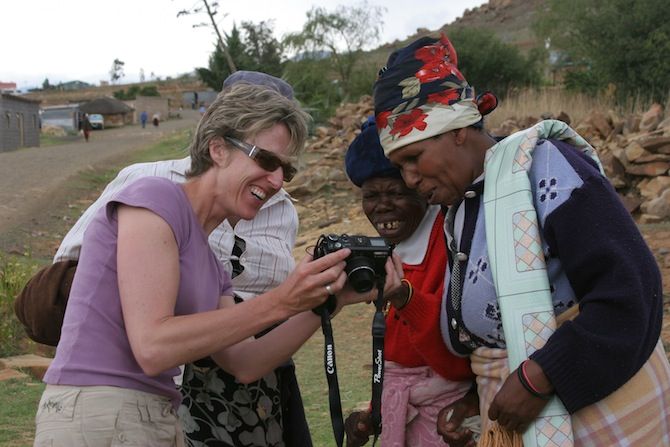
Kate Armstrong: It’s everything from aromas of spices to the sounds of church bells.
Lee Mylne: It’s not about ticking the boxes. It’s about learning things. It’s about meeting people, hearing their stories.
Sue Gough Henly: I think when you’re in a fresh new place you’re so alert and you’re so observant about the everyday things that it makes it special.
Kate Armstrong: For me, it’s about the cuisine, it’s about the connections and the friendships that I make along the way.
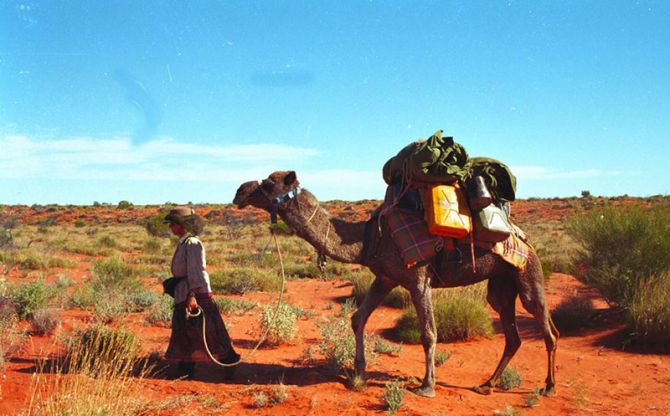
Kate Armstrong: My favourite destination at the moment would be Portugal.
Sue Gough Henly: My favourite destination has to be France . I’m a complete Francophile.
Maria Visconti: A favourite area of mine is Asia as my heart is in Asia.
Kara Murphy: Lady Elliot Island on the Southern Great Barrier Reef because you can swim with turtles every time you get into the water.
Lee Mylne: New Zealand because it’s so diverse and beautiful.
Kerry Heaney: I spent a month in Europe and I have to say that was wonderful, really enjoyed that.
Christine Retschlag: I have to say Queensland. I’ve actually thought a little bit about this and I love it. I’m born and bred here. It’s beautiful. It’s got everything – the world’s oldest rainforest, the world’s largest Reef . It’s got the Outback. It’s got the best beaches. It’s got fantastic people, a fantastic climate, and fantastic food. What’s not to love?
Kerry Heaney: Earrings because they are small. Tea towels because I’m a food writer and memories.
Danielle Lancaster: No, no I’m not a collector. I will occasionally buy something that’s a little bit unusual as a small piece of pottery. No, I’m not a collector. I’m just a collector of photography gear.
Christine Retschlag: I just think that one day I’ll be an old lady and I’ll be sitting there looking through all my stories and thinking about my memories. I’ll be thinking about all the characters that someone a little piece of them comes home with you and changes you.
By Rob McFarland

Travel journalism is one of the most coveted careers on the planet.
Who wouldn’t want to be paid to travel the world visiting luxury escapes , drinking cocktails by the pool of a five-star resort and eating in Michelin-starred restaurants?
Of course, the reality is often very different.
For every five-star resort, there’s a dodgy motel and for every Michelin-starred restaurant , there’s a questionable roadside stall.
But if you love to travel and you love to write, it’s a dream job, so, here are some tips on how to get paid to travel the world.
Let me take you back to 1994…
I finished a degree in Computing and IT and embarked on a career as an IT consultant.
For a while, I enjoyed it.
It was social, it paid well and consultancies can make you feel good about working 80-hour weeks.
But after eight years I realised this wasn’t what I wanted to do – or how I wanted to dress – for the next 30 years.
I had no idea what I wanted to do instead so I took some time off, travelled and read a bunch of career self-help books I swore I’d never go near.
They turned out to be surprisingly helpful and they made me realise two things:
1) I loved travelling 2) I loved writing
While visiting my parents in the UK, I strolled into the lounge room and casually announced that after months of deliberation that I’d finally figured out what I wanted to be: a travel journalist.
Imagine their reaction.
They were – to put it mildly – concerned.
I had no experience.
I’d never studied journalism.
I didn’t even like English at school.
And I was giving up a secure, well-paid career with good prospects.
Undeterred, I returned to Australia and gave myself six months – if I didn’t get something published in that time, at least I’d tried and could always go back to IT.
So I started writing and to my surprise, I started getting published.
Little things at first, in backpacker magazines and airline in flights, then larger features in newspapers.
Soon publications started commissioning me and – to cut a long story short – now I’m a full-time travel journalist.
Why is this important?
Because I want to provide an insight into my background, which as you can see is not in the least bit literary or creative.
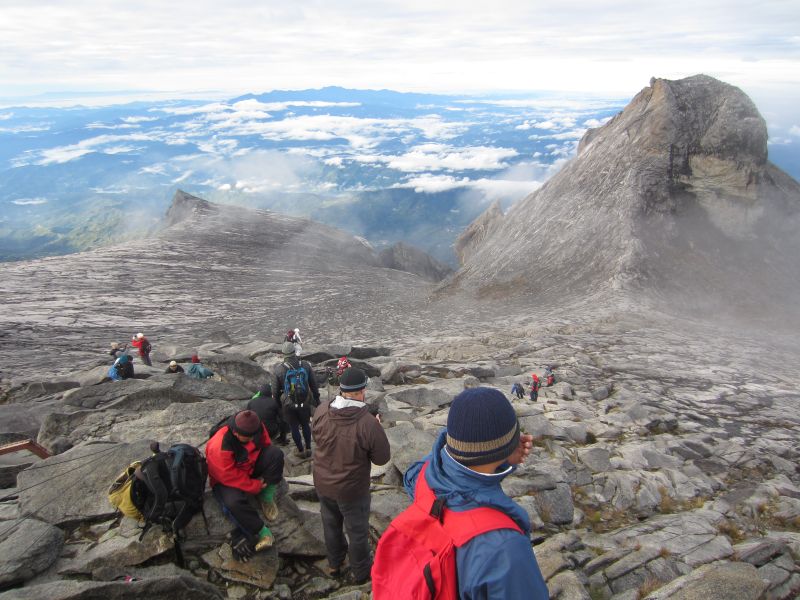
So what does my life look like now?
It’s difficult to describe it without sounding smug but the reality is that companies pay for me to travel and publications pay me to write about it.
Highlights over the last few years include scaling Wayna Picchu in Peru, a six-day white-water rafting adventure in Patagonia, on the Futaleufu River, and climbing Mount Kinabalu, south-east Asia’s highest mountain, in Borneo.
One of the biggest benefits of being a travel writer is that I can work from anywhere, so each year I divide my time between Sydney, New York and Europe.
In summary, I feel like I’ve got my dream job…I get paid to travel.
And I genuinely believe that providing you have an aptitude for writing, anyone can do this.
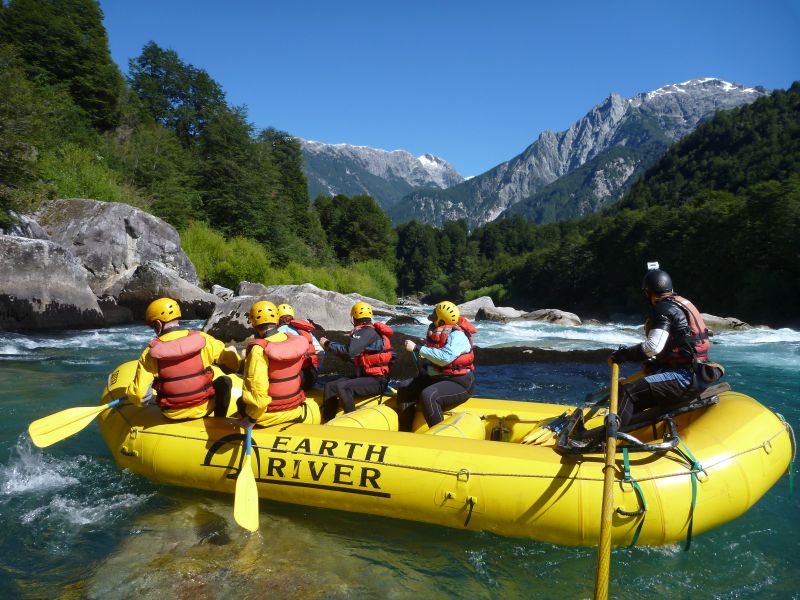
Because of this:
“The great thing about travel writing, particularly at the newspaper level, is that it’s pretty much a meritocracy. If your stuff is good, you’ll get published and recognised. As an editor, I don’t care where (or whether) you went to college, what your resume looks like or whether you’ve previously had a dozen cover stories in National Geographic. All I care about is the manuscript you’ve sent me. If it’s good, I’ll publish it. If it’s not, I won’t.” -John Flinn, former travel editor of the San Francisco Chronicle (Lonely Planet’s Guide to Travel Writing.)
How encouraging is that?
John doesn’t care what you studied or whether you’ve even been published before – he’ll judge you on the story you submit. I can’t think of many careers where that’s the case.
You can’t become a doctor or lawyer next week, but you can become a travel writer.
But how do you break in?
Surely you need to have worked on a publication?
And don’t you need to be a good photographer?
Let’s tackle some travel writing myths – five common misconceptions that exist about the travel writing industry.
Travel Journalism Myths
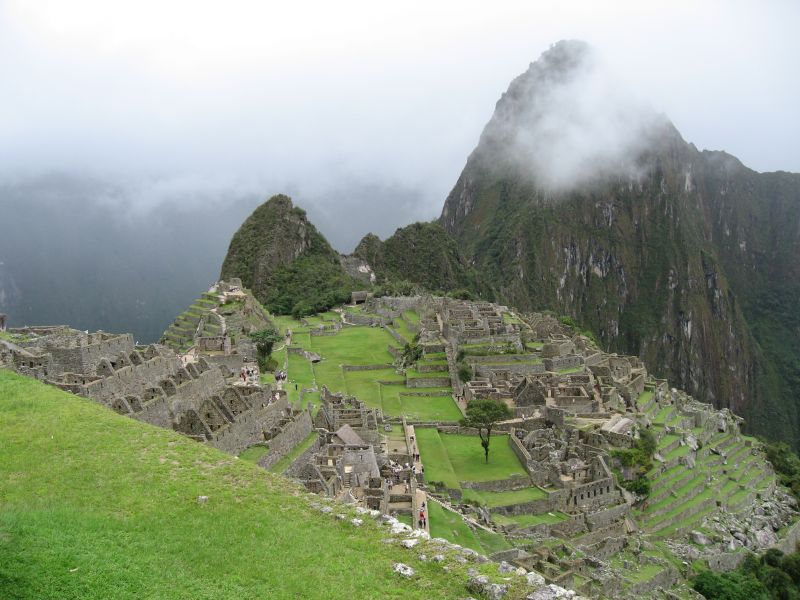
Many of Australia’s most respected and awarded travel writers didn’t study journalism.
They’re just good writers.
In my opinion, you either have an aptitude for writing or you don’t.
Sure, if you want to work on a publication, you’ll need a relevant qualification, but as a travel freelancer, it’s pretty much a level playing field.
An editor will judge you on the story you submit.
I didn’t take photos when I started and it didn’t hold me back.
If you look at the newspaper travel sections you’ll see a lot of the pictures come from image libraries such as Getty and Lonely Planet.
They have thousands of incredible pictures taken by professional photographers all over the world.
It’s unlikely you’ll have been somewhere they haven’t.
I know lots of full-time writers who manage to pay their rent and feed and clothe themselves.
It’s certainly not easy – you need to write a lot – but it’s not impossible.
One warning: the pay is terrible.
I’m a lot poorer now than when I was working in IT, but I’m a hell of a lot happier.
Do not for one second go into this for the money.
You submit a story to a publication and the editor replies “No thanks”.
At this point, it’s all too easy to think:
“It wasn’t good enough. Why am I doing this? I can’t write. I’m going back to being an IT consultant/accountant/ landscape gardener….”
But just think for a second why they might have said no.
It might be because it’s not good enough, but it also might be because they published a similar piece two months ago, or have a similar piece waiting to run.
Editors rarely tell you the reason they’re declining something so it’s all too easy to jump to the “I’m not good enough” conclusion.
I’ve sold dozens of stories that were rejected by one outlet only to be published elsewhere without a single change.
Resist the temptation to put off writing until you’ve read every “How to be a travel writer” book in the local bookshop.
Now, this may seem like an odd thing for someone who runs workshops for aspiring travel writers to say.
The reality is that the people who go on to be successful after taking my course already have an aptitude for writing.
What they get from the course is detailed feedback on their writing (something I would have given my left arm for when I was starting out), ten years’ worth of hard-learnt tips and tricks, and the confidence to actually do it.
“The only training for writing is writing – and reading and reading and writing some more.” Pico Iyer, British novelist.
Travel Writing Tips
Here are five tips to help you get published:
Until you’re established, an editor is never going to commission you to write a story if they haven’t used you before.
Why would they?
You’re an unknown quantity.
So, rather than emailing, “I’m thinking about writing a story on X”, just write it and send it in.
If they like it, they’ll use it. If they don’t, they won’t.
Once you’ve done this a couple of times, and the editor starts to trust you, then you can start pitching ideas.
Don’t send your story as an attachment.
Instead, include it in the body of the email.
To open an attachment, the editor has to double-click on it, wait while it’s virus-scanned and then download it to their computer – all time they could be spent doing something else.
Make it as easy as possible for an editor to read your story.
If the story is right there in the body of the email, literally staring them in the face, it’s almost impossible for them not to read the first line.
Tempting as it might be, don’t send your first story to the New York Times – it is highly unlikely they will publish it.
Choose an outlet that suits your style and runs similar types of stories.
The newspaper travel sections are a good starting point because they need a lot of content each week and will publish a wide variety of styles.
Most of the people who have been published after taking my course had their first story in a newspaper.
Get familiar with the outlet you’re pitching to.
Buy a copy of the magazine or newspaper and figure out the types of stories they publish, the style of writing they prefer (serious/humorous/first-person/third person?) and whether they’ve already run something on that subject.
No matter how well-written your story is, an outlet is never going to publish it if it ran a similar one last week. Or if it’s on a subject it doesn’t cover (the magazine Australian Traveller – which surprise, surprise is about travel within Australia – gets sent international stories all the time).
Providing you can write, there is one quality which will determine whether you make it as a freelance travel journalist: perseverance.
I know so many good writers that aren’t published simply because they haven’t persevered.
And I know a lot of editors who’ve told me they eventually published someone because week after week they kept popping up in their inbox.
You will get rejected.
Probably a lot when you’re starting out. And how you react to it is crucial.
If you let it get to you and give up, you’ll never be published.
If you shrug it off and carry on, you’re still in the game.
If you really want this life; if you want to be paid to travel the world perseverance is what’s going to get you there.
“A professional writer is an amateur who didn’t quit.” Richard Bach, American author
Safe travels and Good luck!
Rob McFarland runs workshops for aspiring travel writers and many of his students have gone on to be published.
Tom Neal Tacker
Writing about travel for the last 15 years has taught me three important lessons:
- To experience life fully, try walking in someone else’s shoes for at least a day.
- Travel is the great mind opener, your imagination will expand.
- Never judge a book by its cover; unknown worlds lie within those pages.
Travel writing has also taught me that clichés are rife.
It’s a useful tool when describing well-known destinations but clichéd nonetheless, hence the three important lessons listed above.
Trying to differentiate from what is the travel story norm:
Step One: bring the reader along for the ride with a first paragraph that captures their attention.
Step Two: cite the location and/or place to satisfy the accommodating host.
Step Tree: describe various experiences, preferably in gung-ho fashion to verify ‘travel writer’ credibility and step four, bring the message home with a ringing endorsement to keep the host and advertiser happy, I can honestly say that most travel writing is crushingly dull and formulaic.
I know as over the years I’ve contributed to the contemporary paradigm.
Why travel writing is contrarily ordinary considering the world’s wonders and extraordinary people means to me the writing shouldn’t be dull.
The voice of experience in mainstream media is whispering in my ear as I write this.
In an attempt to rectify the conundrum I launched my own online magazine so I can write about travel from a nakedly honest perspective.
But I always had a hankering to do more.
How could I offer readers something other than descriptive prose?
How could I deliver the goods I describe in my stories?
How could I take readers along for the journey… for real?
Tom Neal Tacker is a freelance travel journalist and owner of Naked Hungry Traveller.
Plan Your Trip

Rent A Car – Find the best car rental rates at Discover Cars . They compare car hire companies to provide you with the best deal right now.

Find A Hotel – If you’re curious about this article and are looking for somewhere to stay, take a look at these amazing hotels .
Editor's Picks
101 travel quotes – inspiring the journey, 60 luxury escapes for your bucket list, 25 australian landmarks, what's hot, 20 fairytale castles in scotland.

Most common travel journalist degrees
Bachelor's
Start to develop specific travel journalist skills
A travel journalist needs to be capable of content creation, covering a wide range of topics such as destinations, culture, and high-net-worth issues. They must also be able to conduct effective interviews with prominent figures and generate in-depth features and news stories. Additionally, social media skills are necessary to keep up with evening programs and provide timely updates and commentary.
Complete relevant travel journalist training and internships
Research travel journalist duties and responsibilities.
- Manage studio operations, ensuring that shows run efficiently by floor directing, prompting and providing scripts.
- Cover destinations and accommodations; cuisine and spirits; and the arts, culture, and high-net-worth topics.
- Construct and edit web-published multimedia pieces that are featured on the university's athletic programs.
- Create documentaries about individuals facing challenges.
Prepare your travel journalist resume
When your background is strong enough, you can start writing your travel journalist resume.
You can use Zippia's AI resume builder to make the resume writing process easier while also making sure that you include key information that hiring managers expect to see on a travel journalist resume. You'll find resume tips and examples of skills, responsibilities, and summaries, all provided by Zippi, your career sidekick.
Choose From 10+ Customizable Travel Journalist Resume templates

Apply for travel journalist jobs
Now it's time to start searching for a travel journalist job. Consider the tips below for a successful job search:
- Browse job boards for relevant postings
- Consult your professional network
- Reach out to companies you're interested in working for directly
- Watch out for job scams
How Did You Land Your First Travel Journalist Job

Are you a Travel Journalist?
Share your story for a free salary report.
Average travel journalist salary
The average Travel Journalist salary in the United States is $95,966 per year or $46 per hour. Travel journalist salaries range between $56,000 and $162,000 per year.
What Am I Worth?
How do travel journalists rate their job?
Updated June 25, 2024
Editorial Staff
The Zippia Research Team has spent countless hours reviewing resumes, job postings, and government data to determine what goes into getting a job in each phase of life. Professional writers and data scientists comprise the Zippia Research Team.
- Zippia Careers
- Arts, Entertainment, Sports, and Media Industry
- Travel Journalist
Browse arts, entertainment, sports, and media jobs

IMAGES
VIDEO
COMMENTS
Here are the steps you can take to pursue a career in travel journalism: 1. Earn a degree. While some employers may hire travel journalists without a degree, earning this academic credential can often help you find full-time jobs with media outlets. Earn a bachelor's degree in journalism, communications or a related area, such as tourism and ...
A travel journalist may have to work overtime in order to meet the desired target or deadline. However, due to travel inconveniences, they may be forced to work overtime. Weekly Hours of Work Min 45 Hours. A travel journalist does not have a minimum working hour condition, but one has a goal to complete.
If you want to become a travel journalist, first and foremost you must love to write. You must be articulate and skilled at communicating. And — obviously — you must enjoy traveling, meeting people, researching facts, and crafting a compelling story from what you learn. It's also important to know that most media outlets have dramatically ...
1. Freelance travel journalist. A freelance travel journalist is a professional who provides content for independent clients, rather than a specific company. Many freelance journalists approach various publications and other companies with pitches of ideas for new travel articles, blogs or books. If the company accepts, the journalist then ...
Travel Journalist Career Guide: Exploring Travel Journalism. Written by MasterClass. Last updated: Feb 10, 2022 • 5 min read. If you have writing and reporting skills and interest in travel, you might consider a career as a travel journalist.
Talk to other writers, attend workshops or conferences and research travel markets. The better you understand the business, the more success you will have. Read more on the business of travel writing. Social media is a huge part of work as a travel writer. Follow other travel bloggers, journalists and influencers.
Travel Journalist Work Environment. A travel journalist's work environment is as varied as the destinations they cover. Their office can range from a bustling city café to a tranquil beach, with the constant companion of a laptop or camera. The tools of their trade are digital and portable, emphasizing the need for reliable technology and ...
Travel journalism: narrating and exploring the world through stories. Travel journalism was born with the objective of moving the reader and transmitting sensations without forgetting the rigor of journalistic work. We delve into one of the most promising (and fascinating) professions of the moment. Travel journalism can be defined as a ...
As many travel journalists and bloggers work freelance, schedules can often be based around particular partnerships or trips one wants to move forward with. But the question often arises as to how much travel time is actually dedicated to working and creating content. Whether you use your smartphone, a point and shoot, or a high-end camera and ...
Here are the steps to becoming a travel writer: Develop strong writing skills: Strong writing skills are essential for becoming a travel writer. Take writing courses or workshops, read widely, and practice writing regularly. You can start a blog or contribute to online publications to gain experience and build a portfolio.
With the popularity of travel as a hobby, the job is highly competitive and typically freelance. The steps to becoming a travel writer include: 1. Get a degree in a relevant subject. As with many specialist positions, getting a good undergraduate degree can support your success, though it's not always necessary.
A travel correspondent or journalist generally works for media companies or large publications or as a freelancer. An editor may ask these professionals to cover specific regions or topics or they may choose what they want to write about. The responsibilities of a travel correspondent include:
For many writers, the dream is to work full-time as a travel writer for a publication. It offers stability while letting you travel to different destinations to write and explore. Although there are many travel-focused magazines like Conde Nast Traveler and Travel + Leisure that might have staff writer positions, don't discount other ...
Being a travel journalist is a fascinating profession, but it is also full of clichés. We explain exactly what it entails.
A travel writer is a writer who specializes in documenting their travel experiences, providing insights into the places they visit, and sharing recommendations for other travelers. ... and geography of the places they visit. Travel writers often work for newspapers, magazines, and travel websites, and they may also write books or blogs about ...
Jac Taylor adds that the stakes are high with travel writing. "To be a travel writer, you need to be tough enough to only be as good as your last article every single time," she says, "even with editors you've worked with for years.". Get rich. In experiences. "Travel writers don't get anywhere near as well paid as people might ...
To excel in this field, hone your writing skills by practicing regularly, reading extensively, and seeking feedback from experienced writers. 2. Cultivate a Keen Eye for Detail. Attention to detail is paramount in travel journalism. Your ability to observe and capture the essence of a place will set your work apart.
To become a travel journalist in the UK, you can start by getting a degree in a relevant subject. Then, begin practicing independent travel journalism and seek out freelance jobs. You can also apply for full-time positions and work within a specific publication. Building up professional connections in the industry is also important.
Leveraging digital platforms enables travel journalists to showcase their work effectively. Social media and personal websites serve as key tools for sharing stories, photos, and videos. According to a 2023 survey by the Content Marketing Institute, 70% of freelance writers use social media for promotion, highlighting its importance in reaching ...
Travel journalism jobs involve working to create content about traveling and the travel industry. The most common position is a travel journalist for a magazine or website. Your duties in this position may include reporting on an assigned destination, pitching story ideas, and interviewing professionals who work in the travel industry.
A travel journalist earns anywhere between $30,000 and $100,000 per year. The job requires a combination of writing, photography, videography, research, and editing skills. The work is highly competitive but if you have good skills there are lots of opportunities to grow. Most journalists have started as interns and worked up from there.
Professional travel journalists reveal what they love about travelling, how to become a travel journalist and what makes a good travel story. 14.9 C. Sydney. Wednesday, August 14, 2024 ... Sure, if you want to work on a publication, you'll need a relevant qualification, but as a travel freelancer, it's pretty much a level playing field. ...
It typically takes 4-6 years to become a travel journalist: Years 1-4: Obtaining a Bachelor's degree in a relevant field, such as journalism, communications, or English. During this time, you'll learn about writing techniques, storytelling, and media ethics. Years 5-6: Accumulating the necessary work experience in travel writing, journalism, or ...
The Role of SEO in Travel Writer Jobs Keyword Research. Effective travel copywriting involves strategic keyword usage to improve search engine rankings. Use tools like Google Keyword Planner or SEMrush to identify relevant keywords. Incorporate these naturally into your content, including titles, headings, and meta descriptions. Content Formatting
Fernanda Galan covers Central Valley and California news as The Fresno Bee's service journalism reporter. Before joining The Bee in 2024, she reported in Milwaukee, Arizona and Los Angeles.